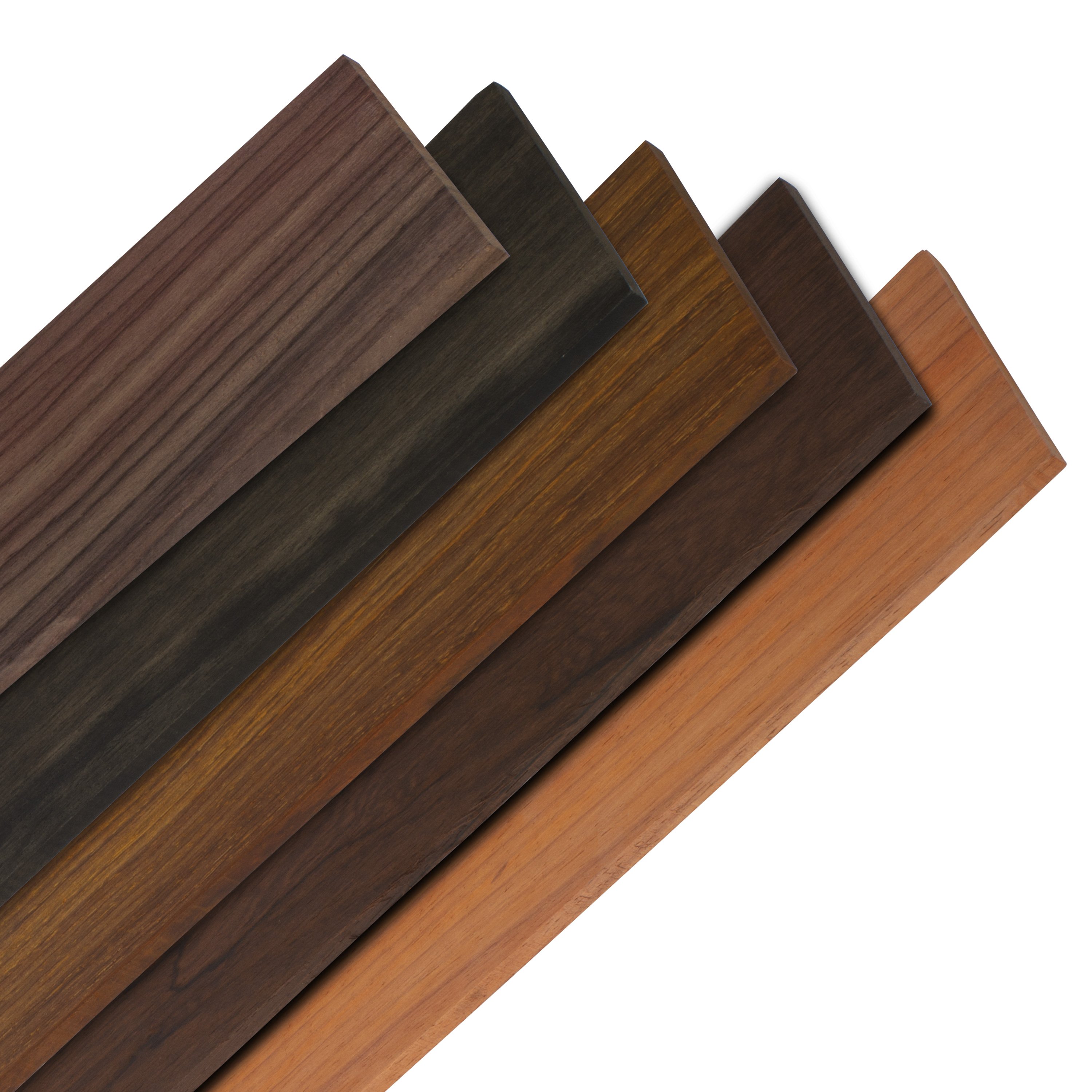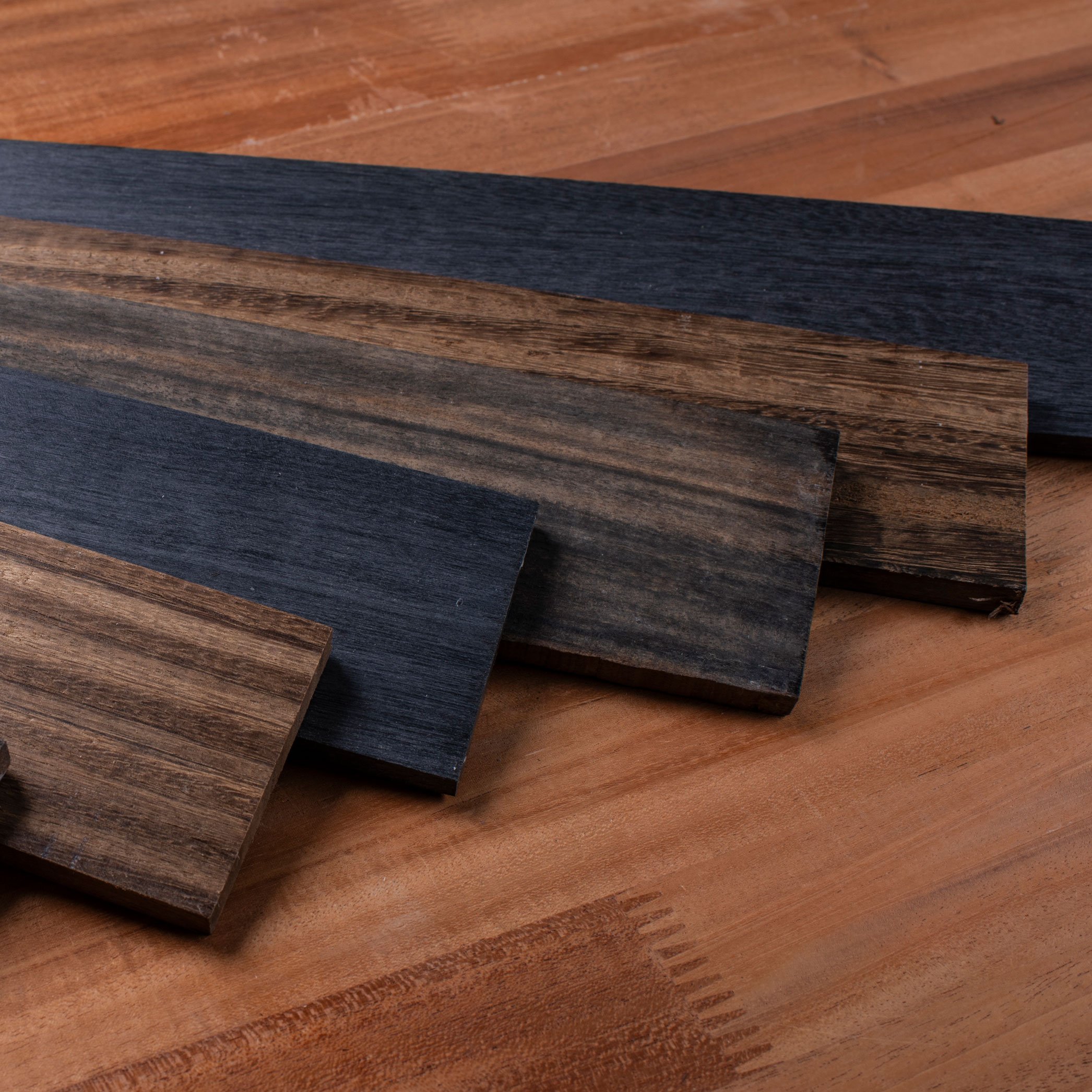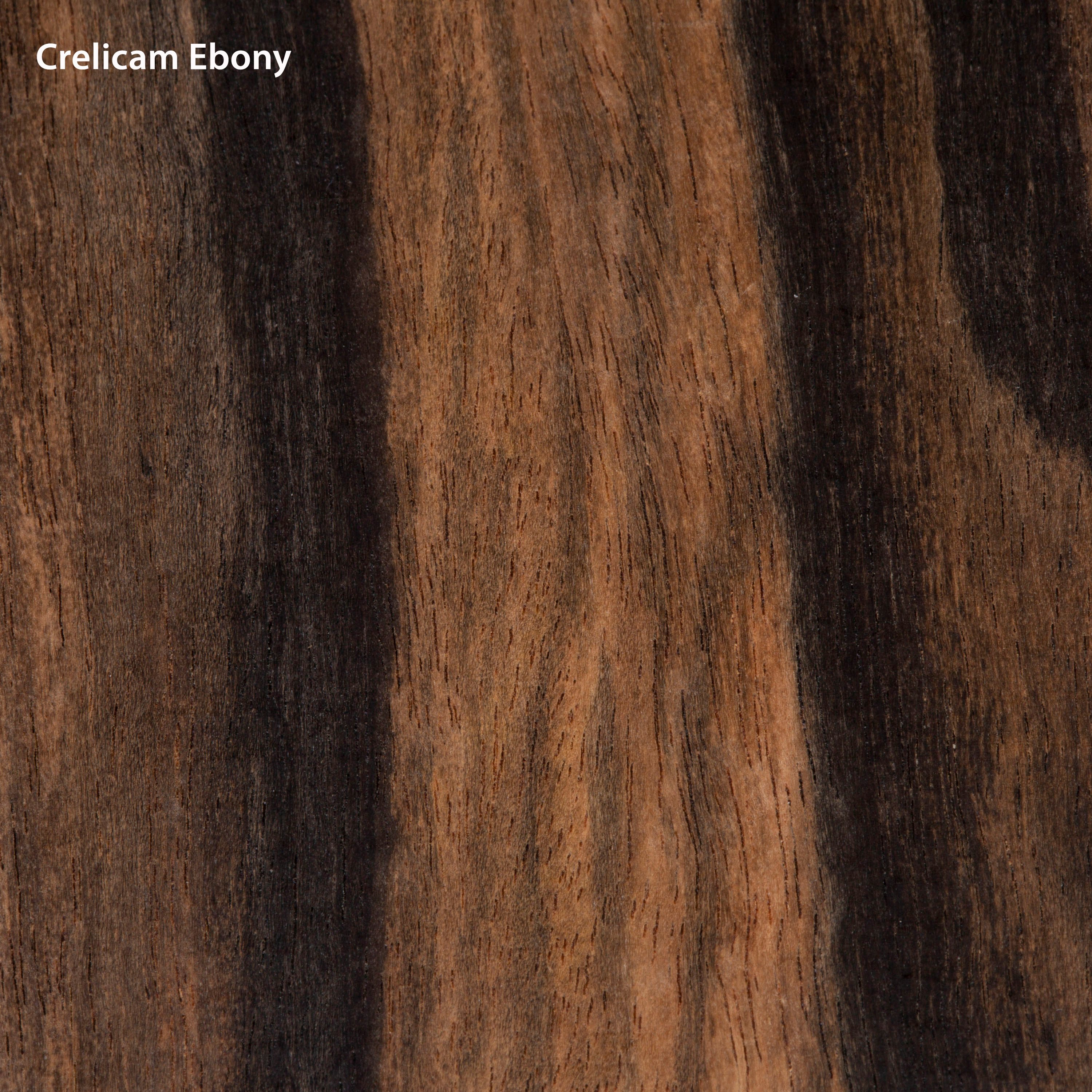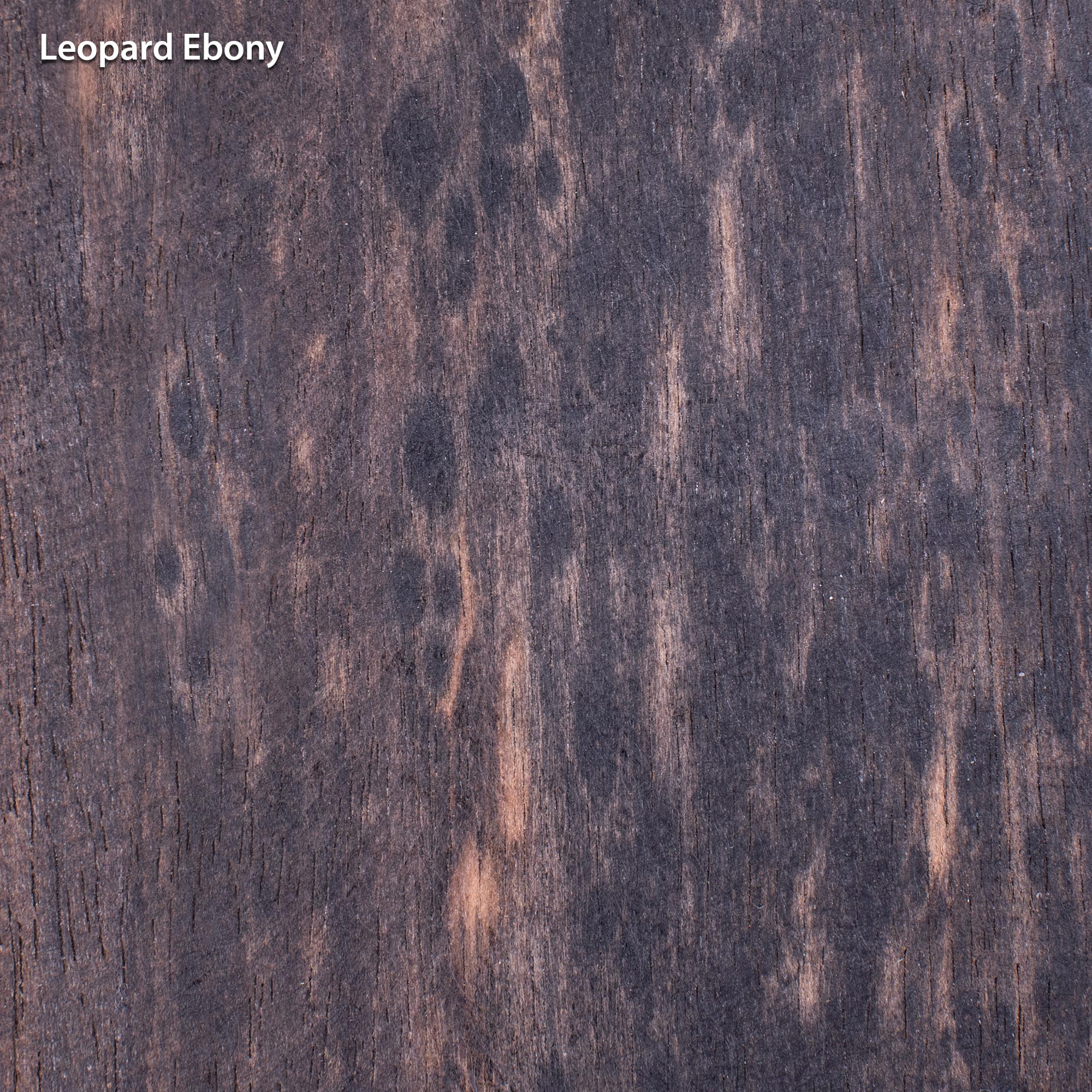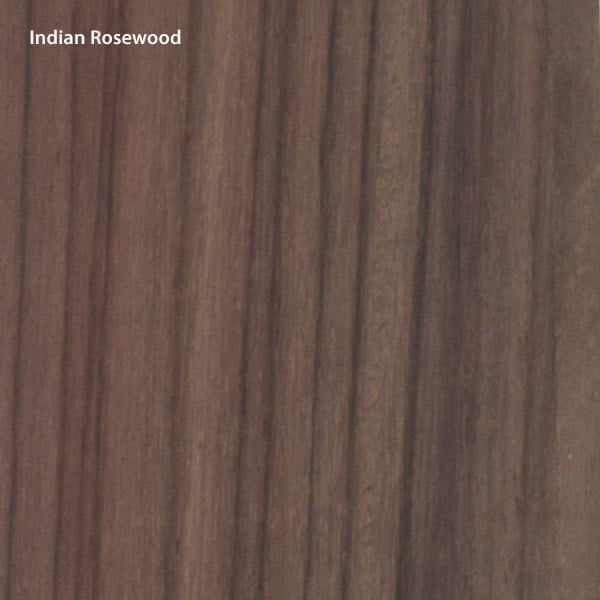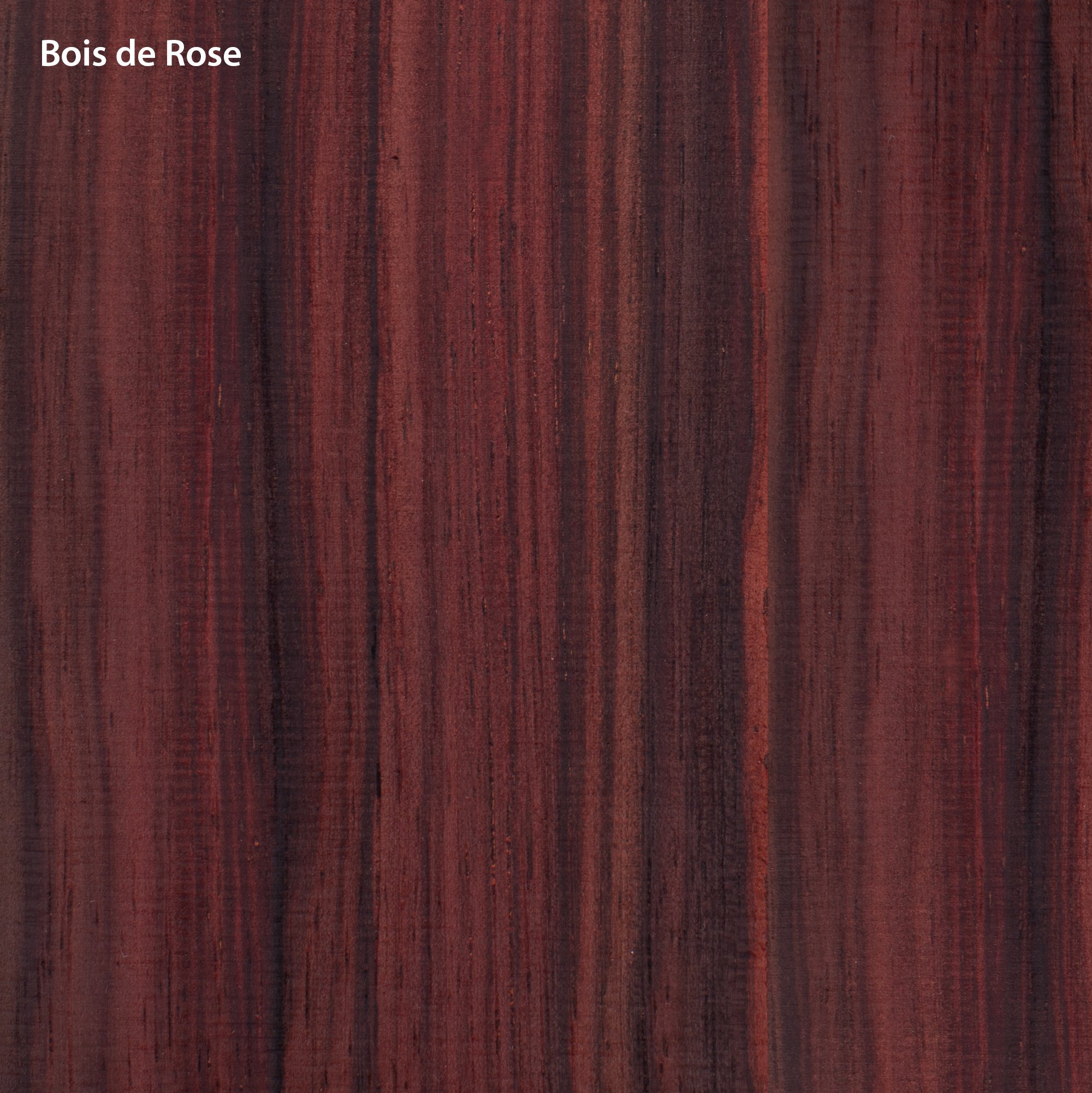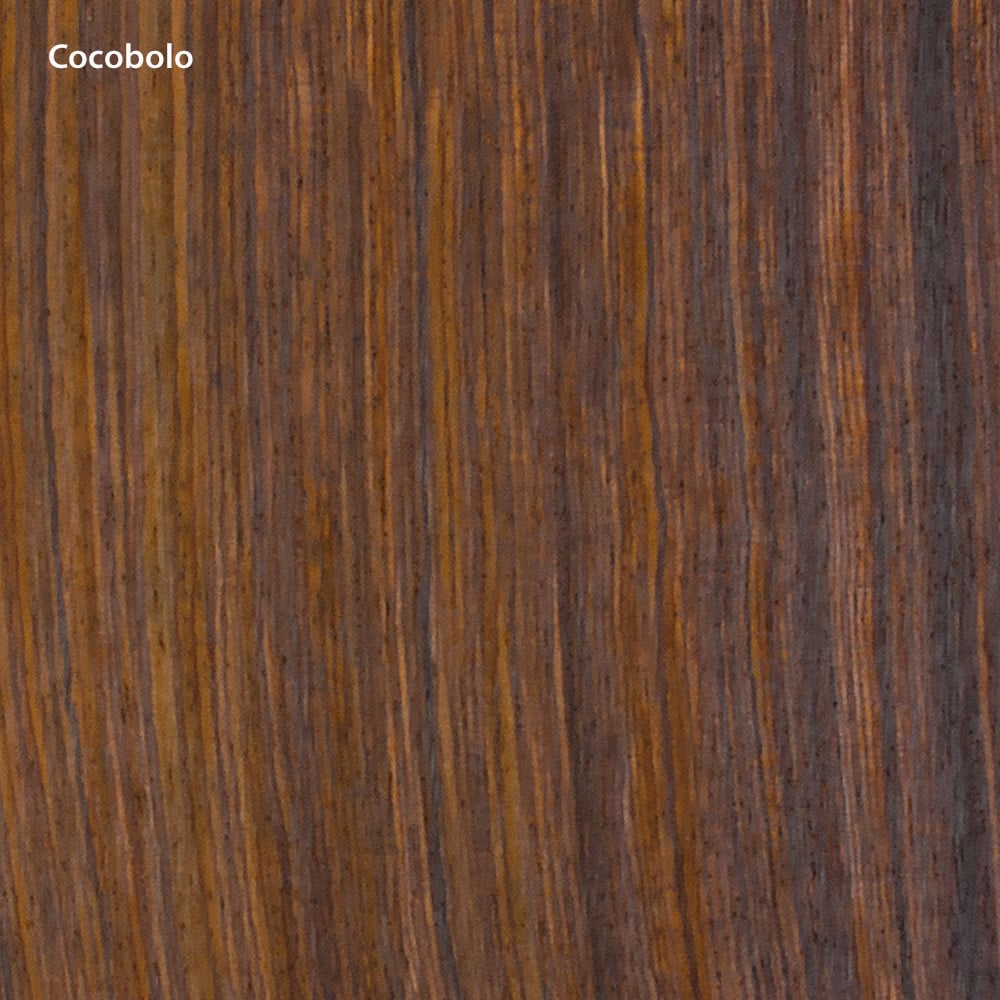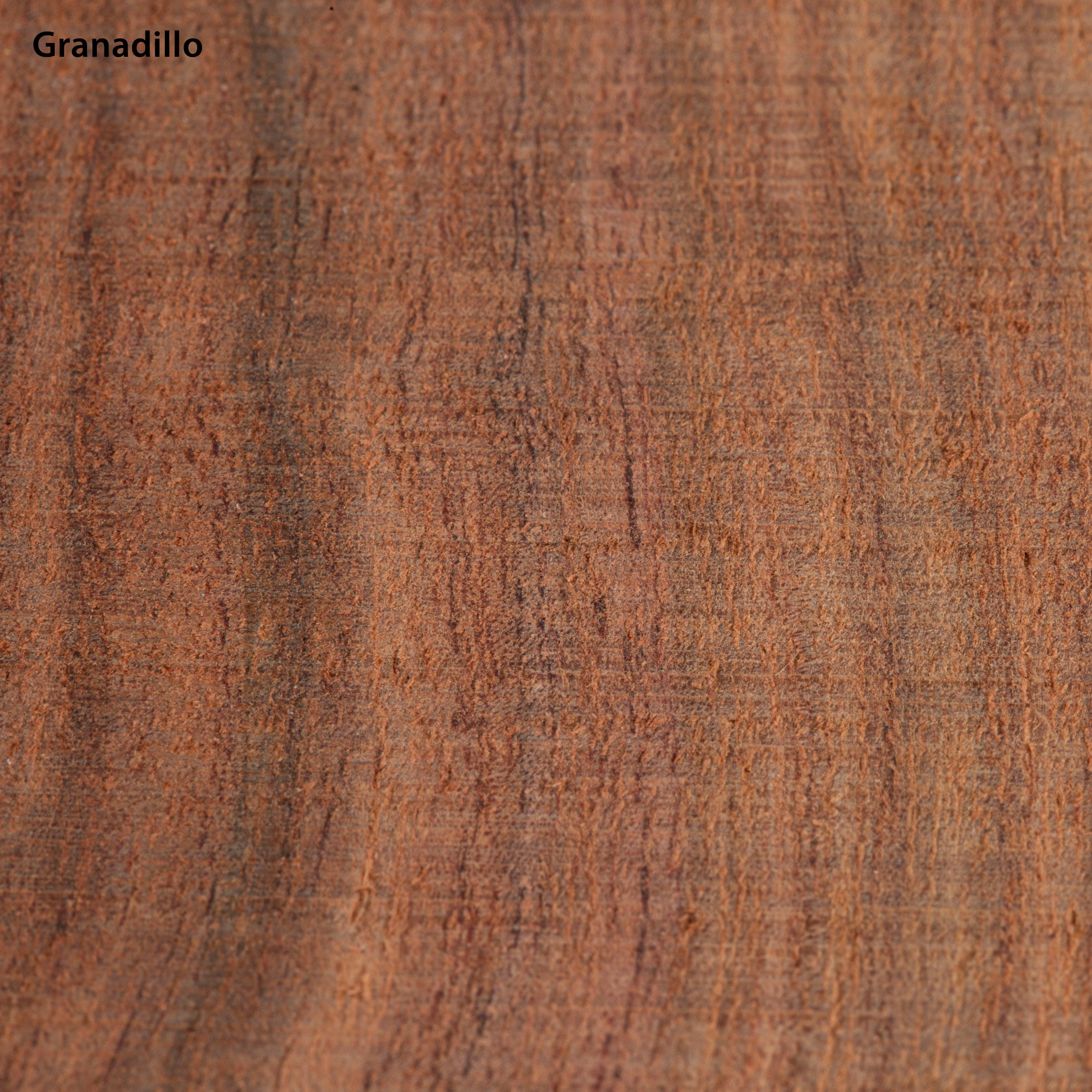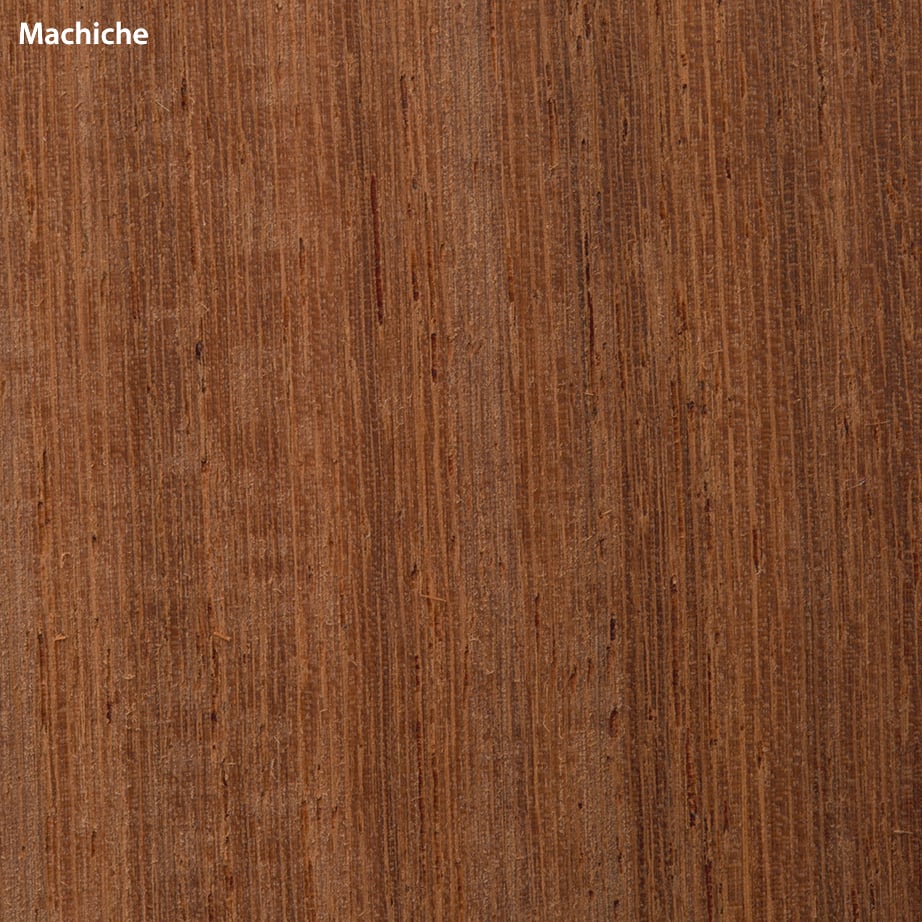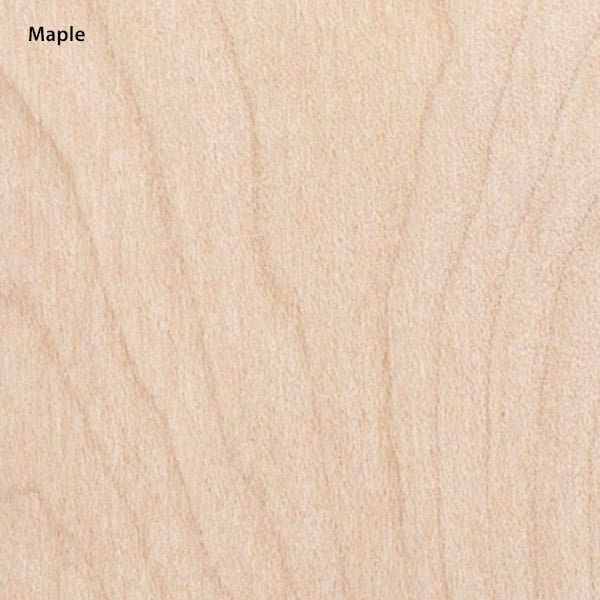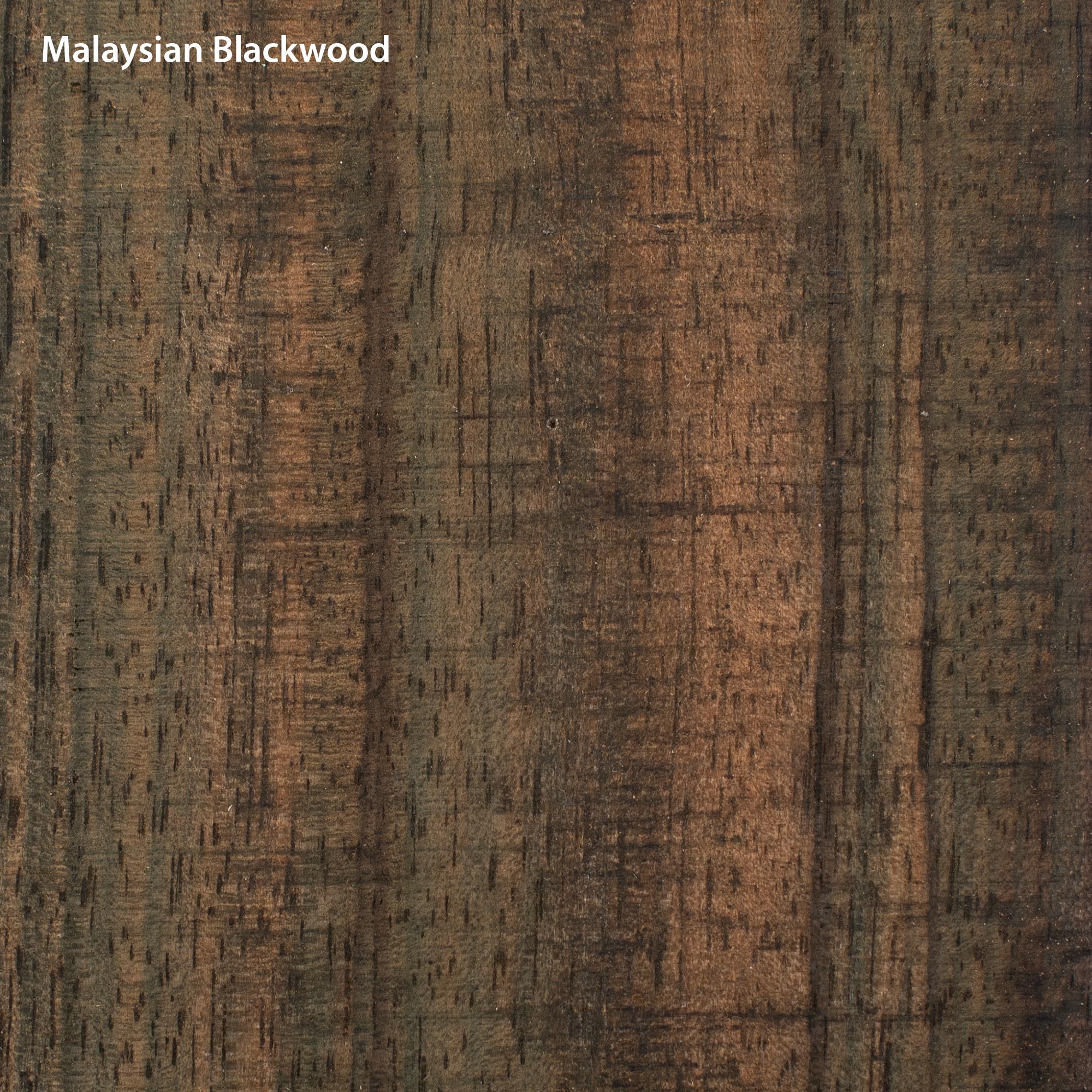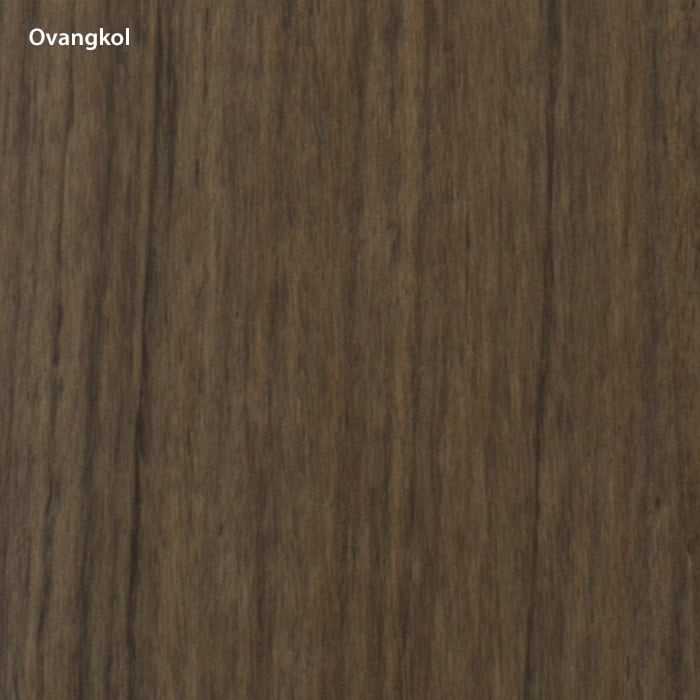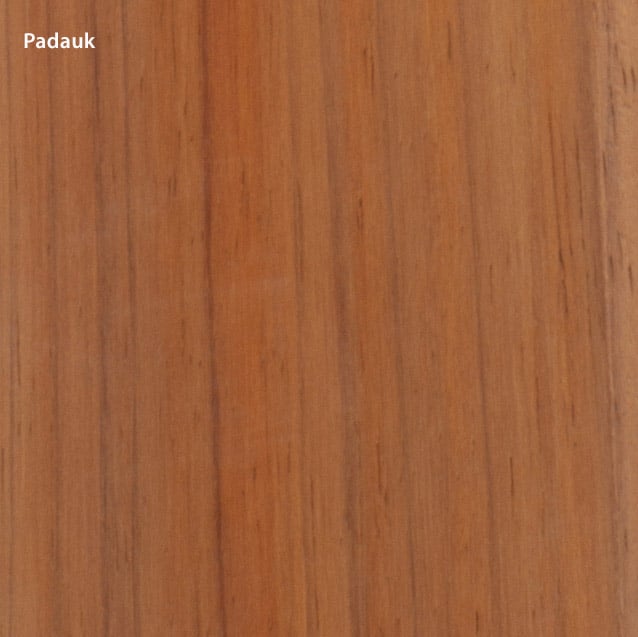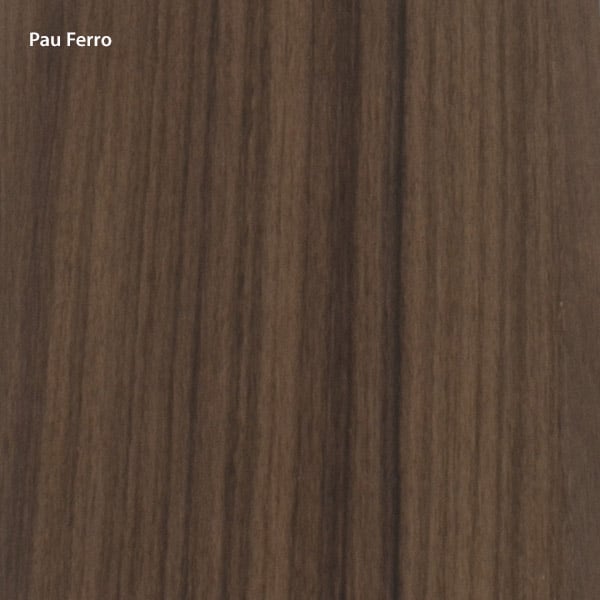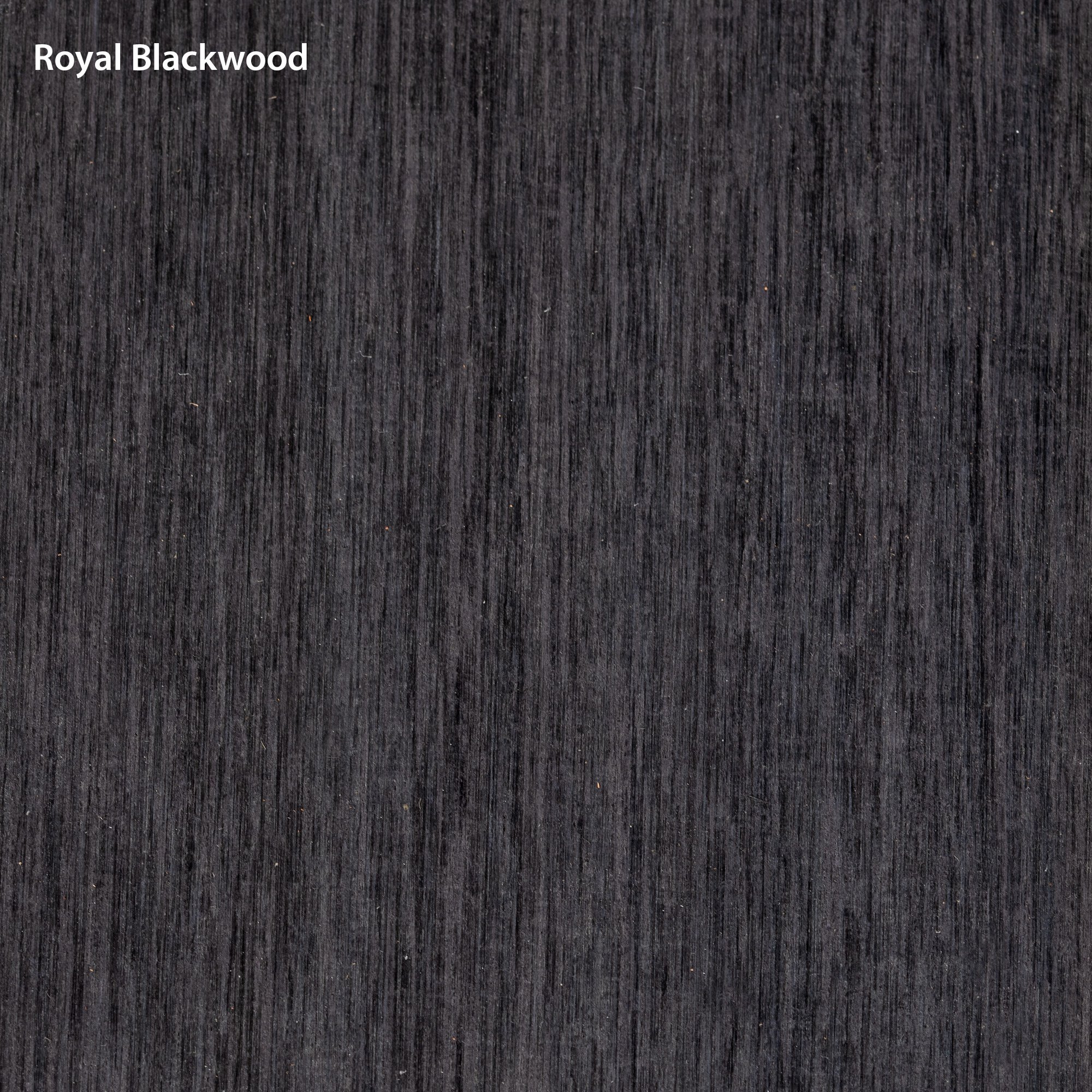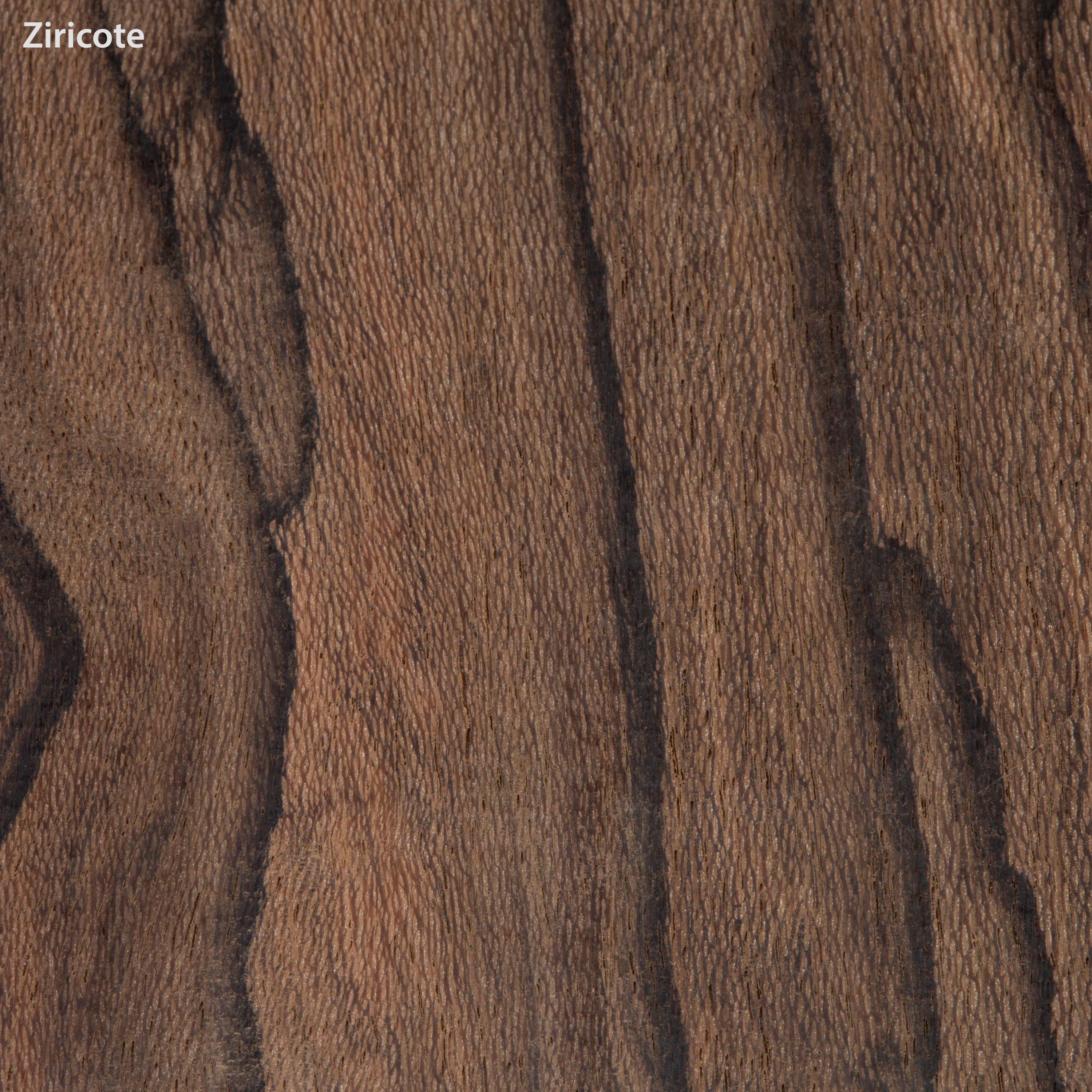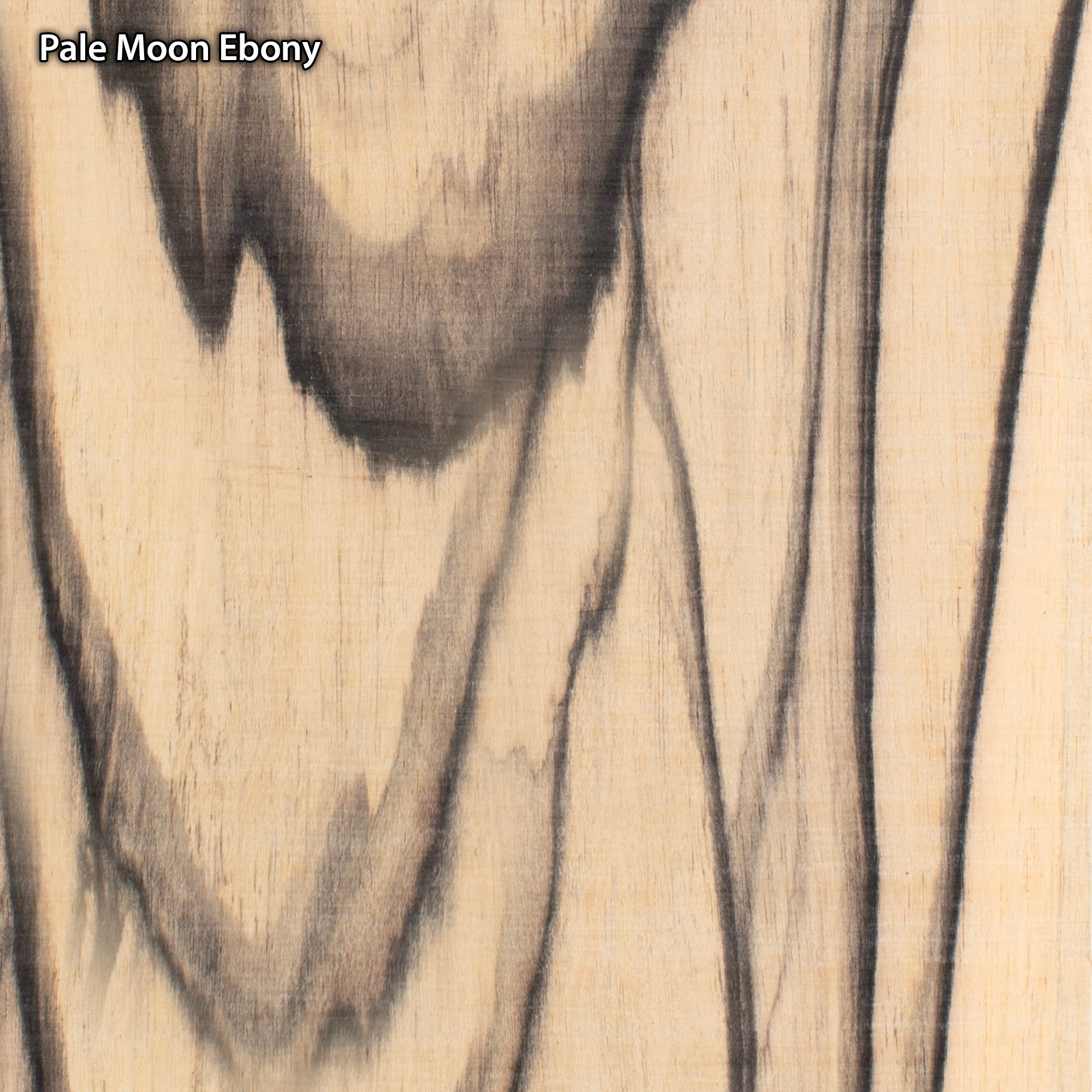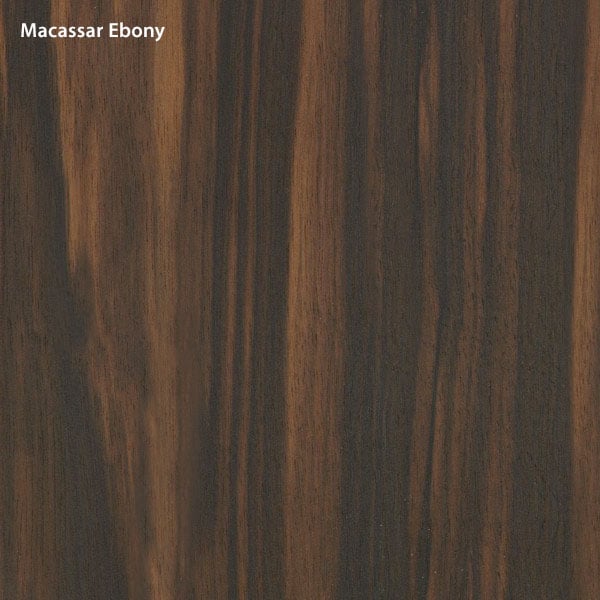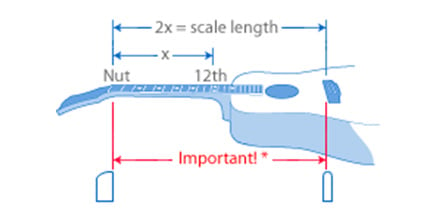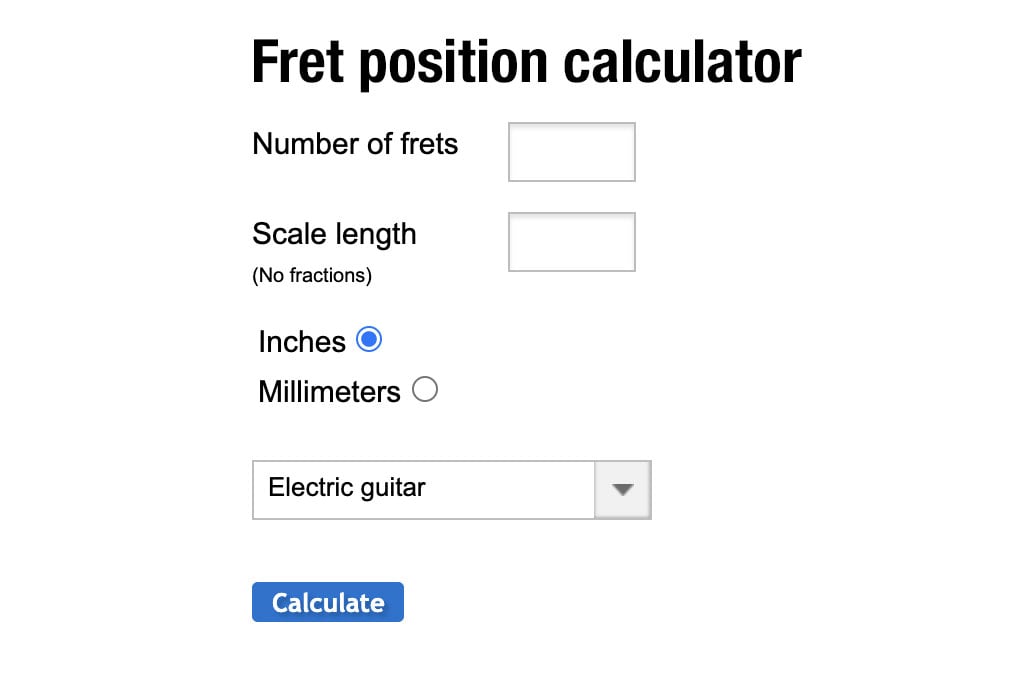Unslotted Fingerboard for Guitar
(89)Find the right board for your build
As you probably know, in recent years the availability of high quality, old-school, style fingerboards—the kind players have come to expect on their guitars—have been harder and harder to find.
As a result, our team set out on a mission to scour the world to find sustainable stashes of the best quality fingerboards available anywhere, and now, after much searching we're proud to stock one of the finest assortments of fingerboards you'll find anywhere.
Unslotted Fingerboard for Guitar
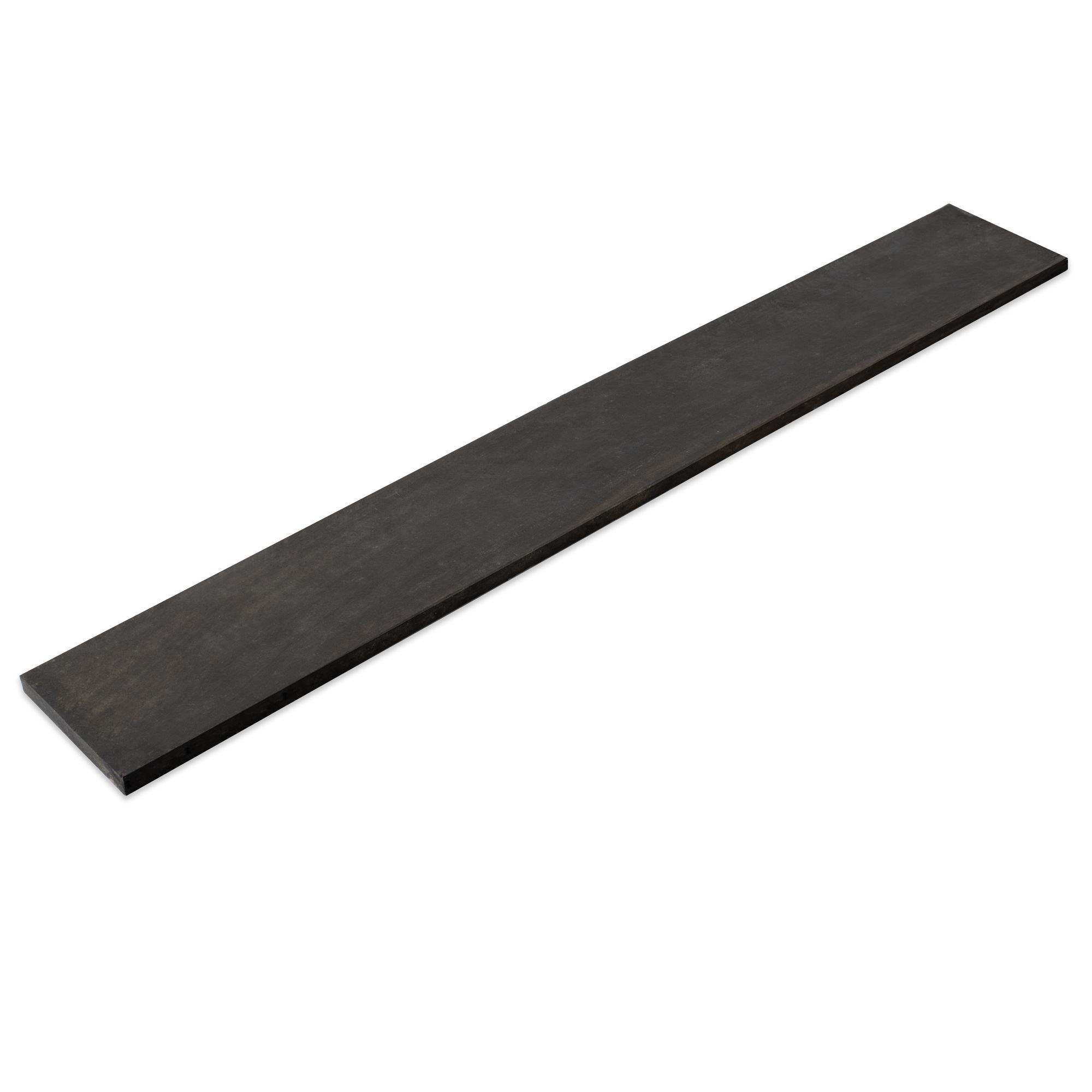
Diospyros crassiflora
Minimum board dimensions:
3" x 20-7/8" x 11/32"
(75mm x 530mm x 9mm)
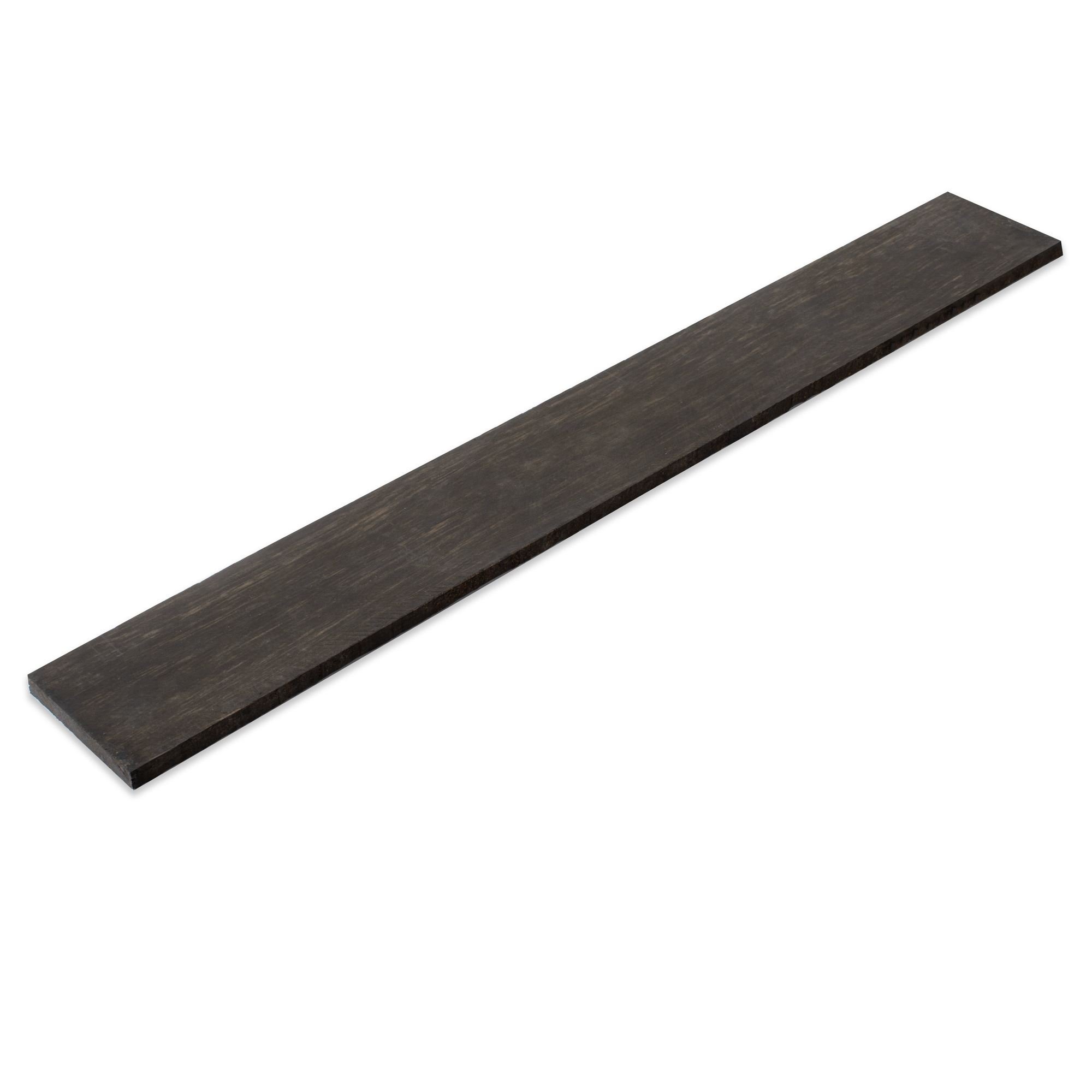
Diospyros crassiflora
Minimum board dimensions:
3" x 20-7/8" x 11/32"
(75mm x 530mm x 9mm)
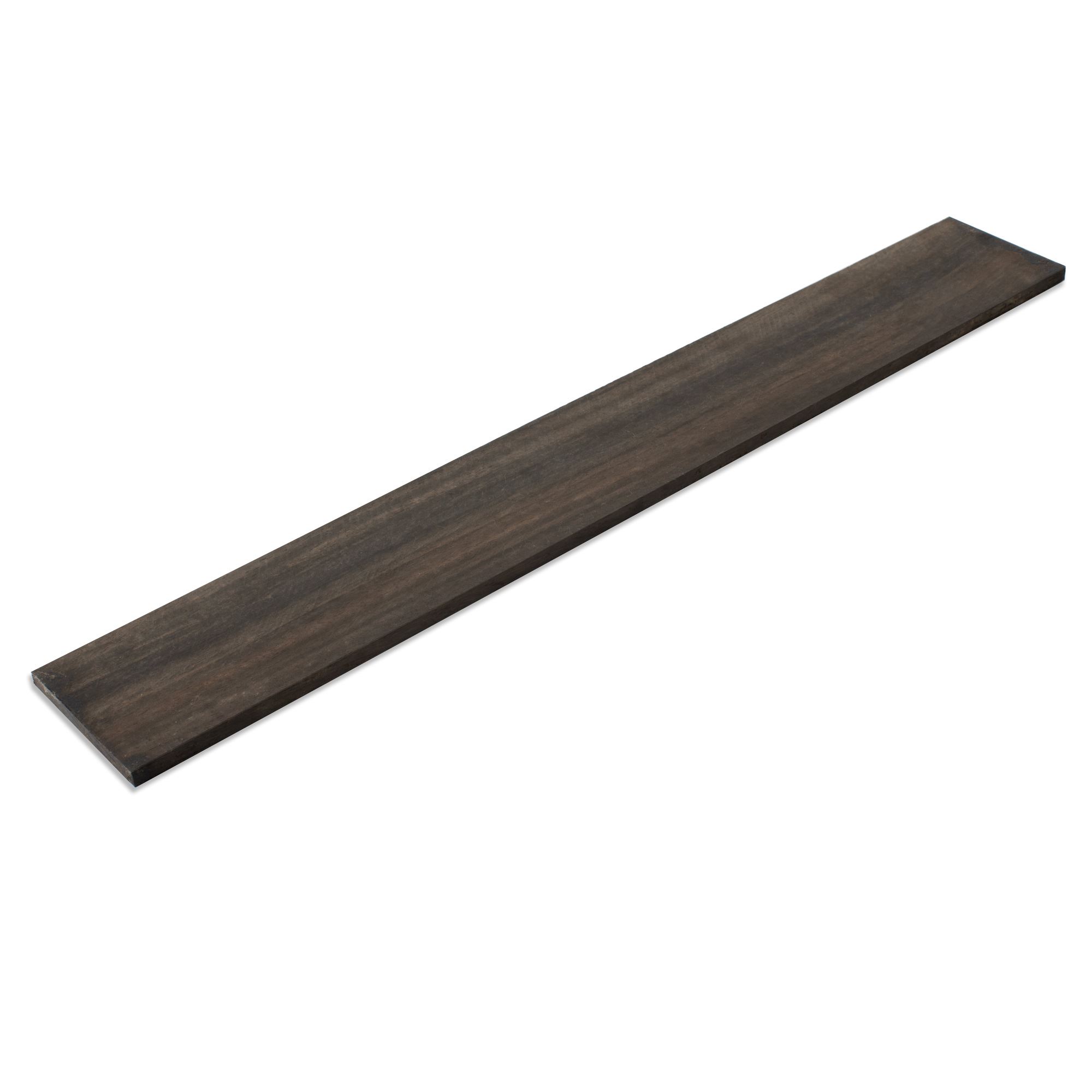
Diospyros crassiflora
Minimum board dimensions:
3" x 20-7/8" x 11/32"
(75mm x 530mm x 9mm)
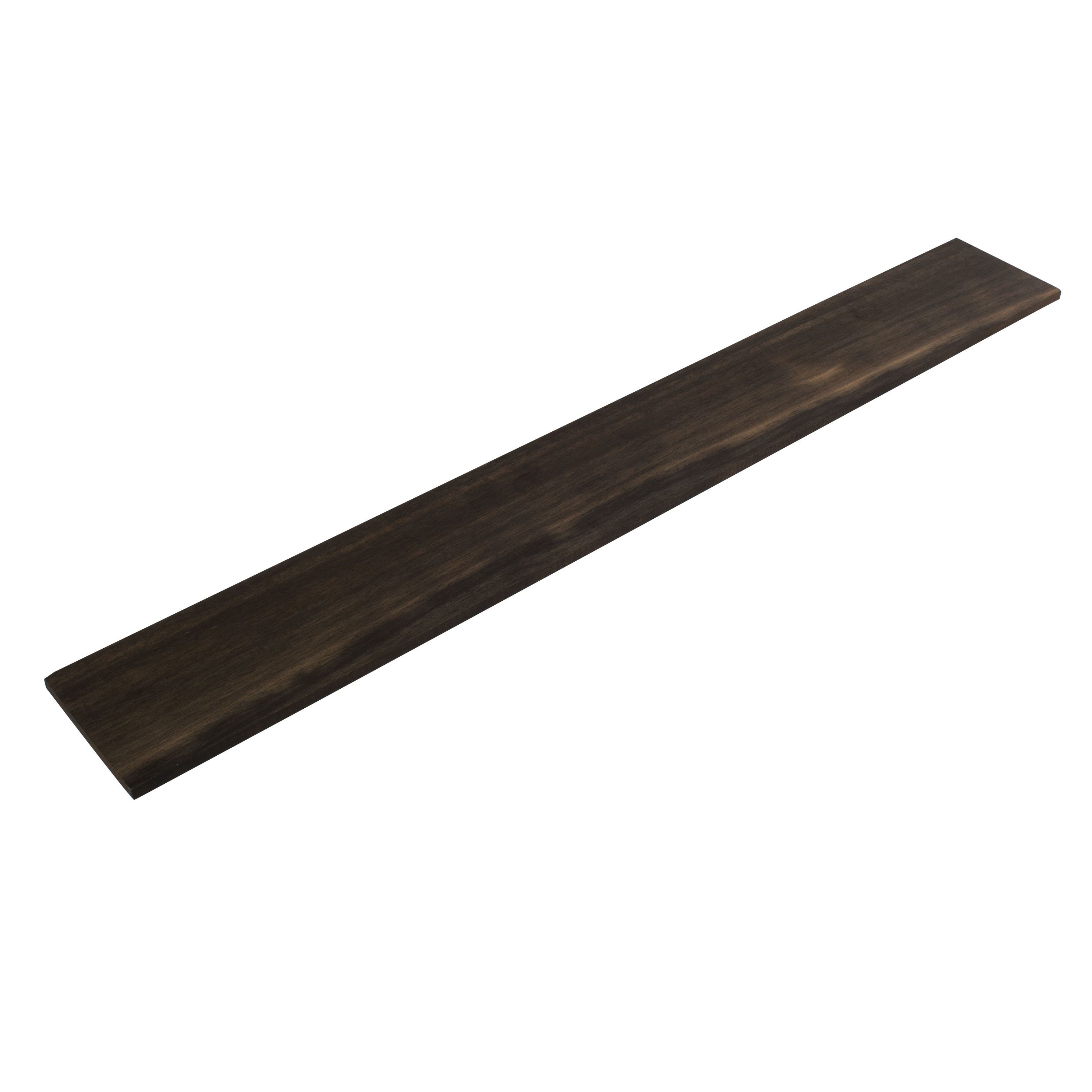
Diospyros crassiflora
Minimum board dimensions:
2-3/8" x 20" x 15/64"
(60.32mm x 508mm x 5.95mm)
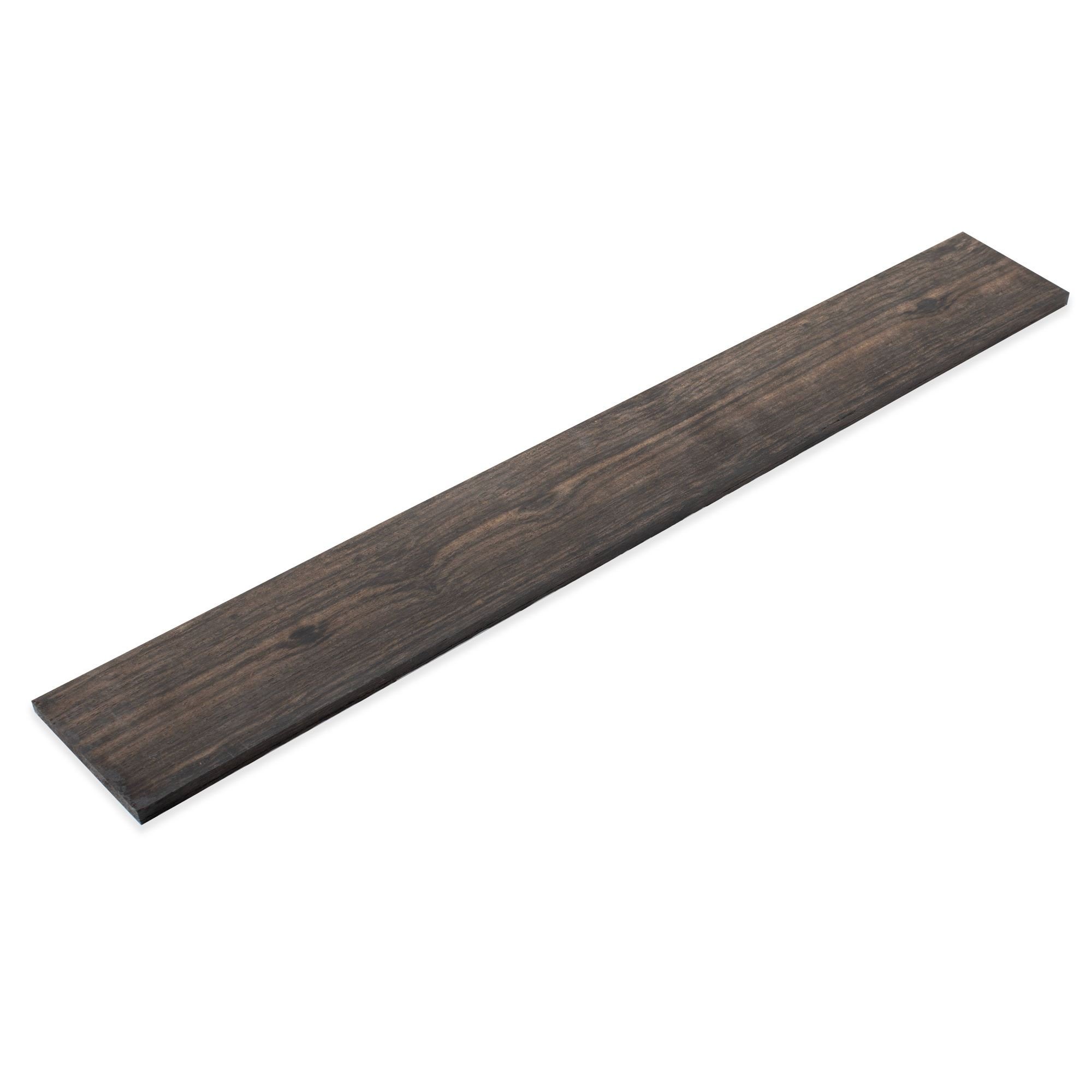
Diospyros crassiflora
Minimum board dimensions:
2-3/4" x 21" x 5/16" (68.85mm x 533mm x 8mm)
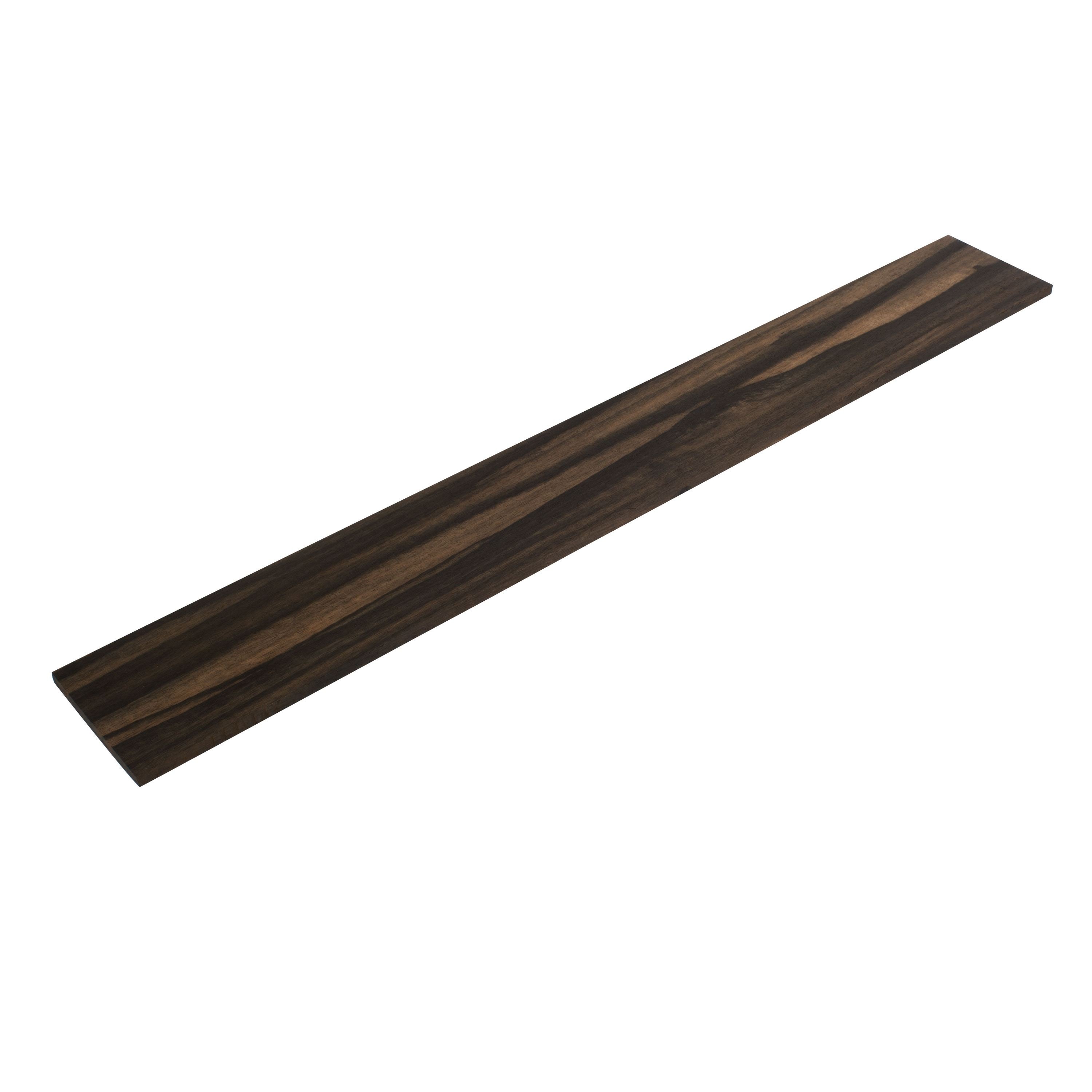
Diospyros crassiflora
Minimum board dimensions:
2-3/8" x 20" x 15/64" (60.32mm x 508mm x 5.95mm)
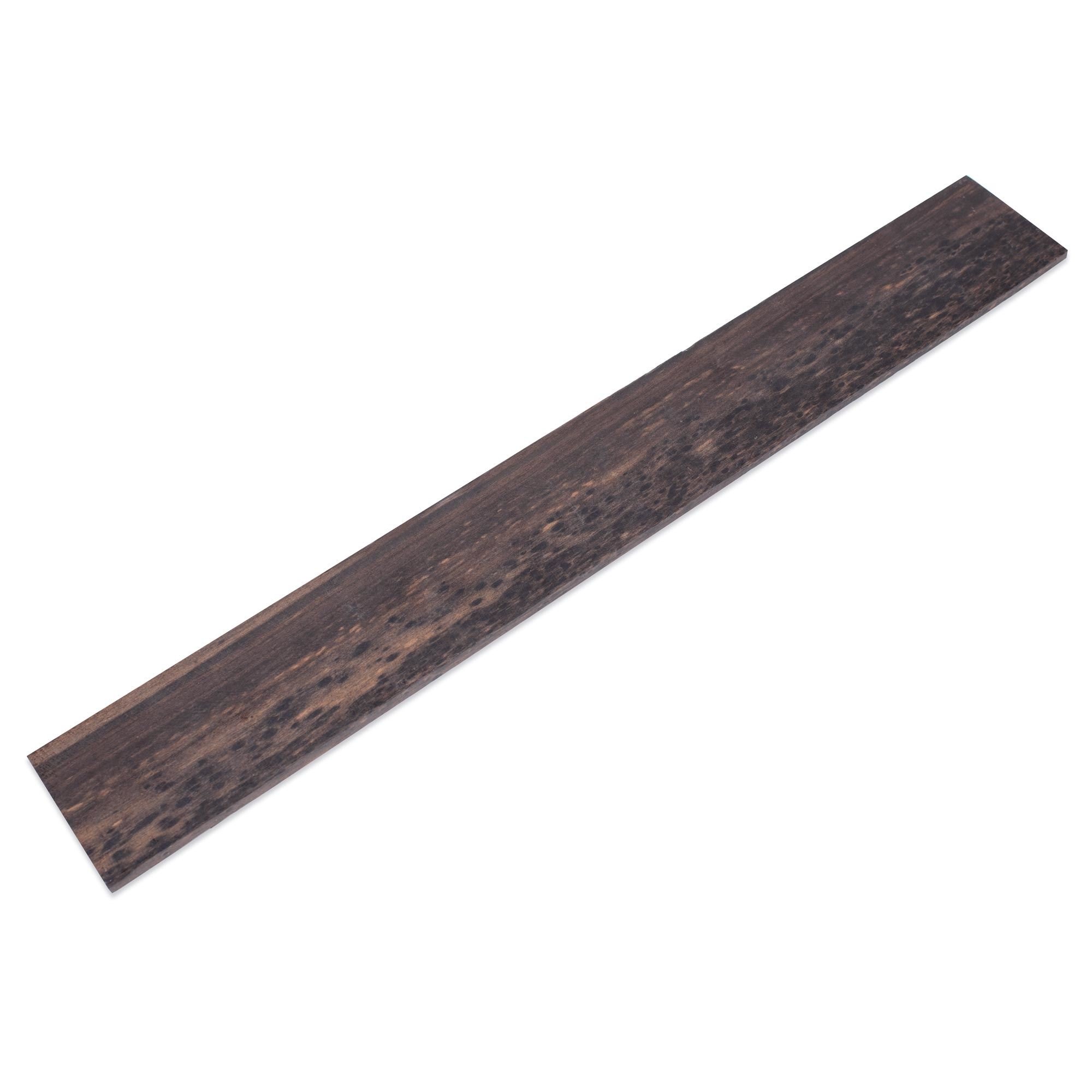
Diospyros crassiflora
Minimum board dimensions:
3" x 20-7/8" x 11/32" (75mm x 530mm x 9mm)
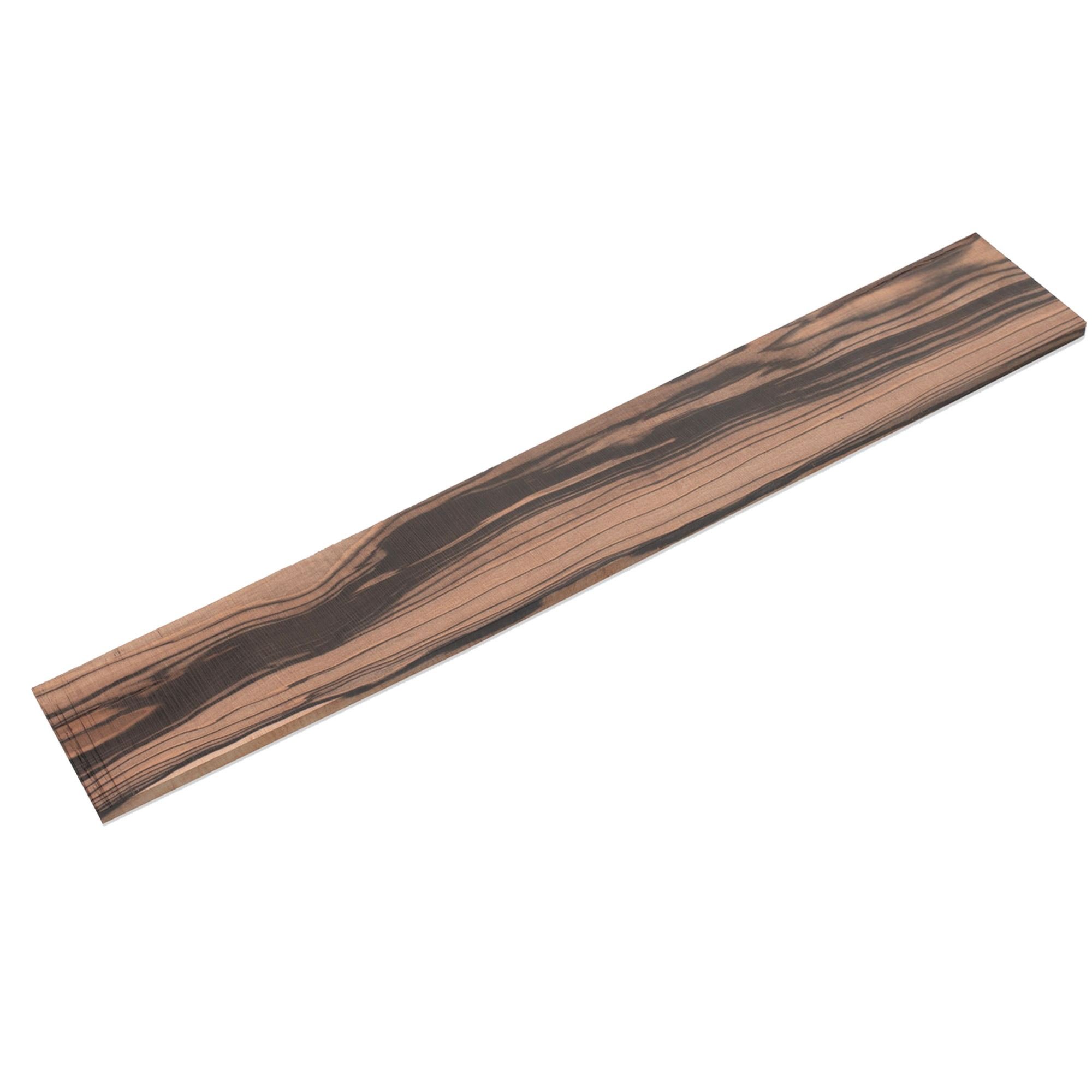
Diospyros celebica
Minimum board dimensions:
3" x 20" x 11/32" (76.2mm x 508mm x 8.7mm)
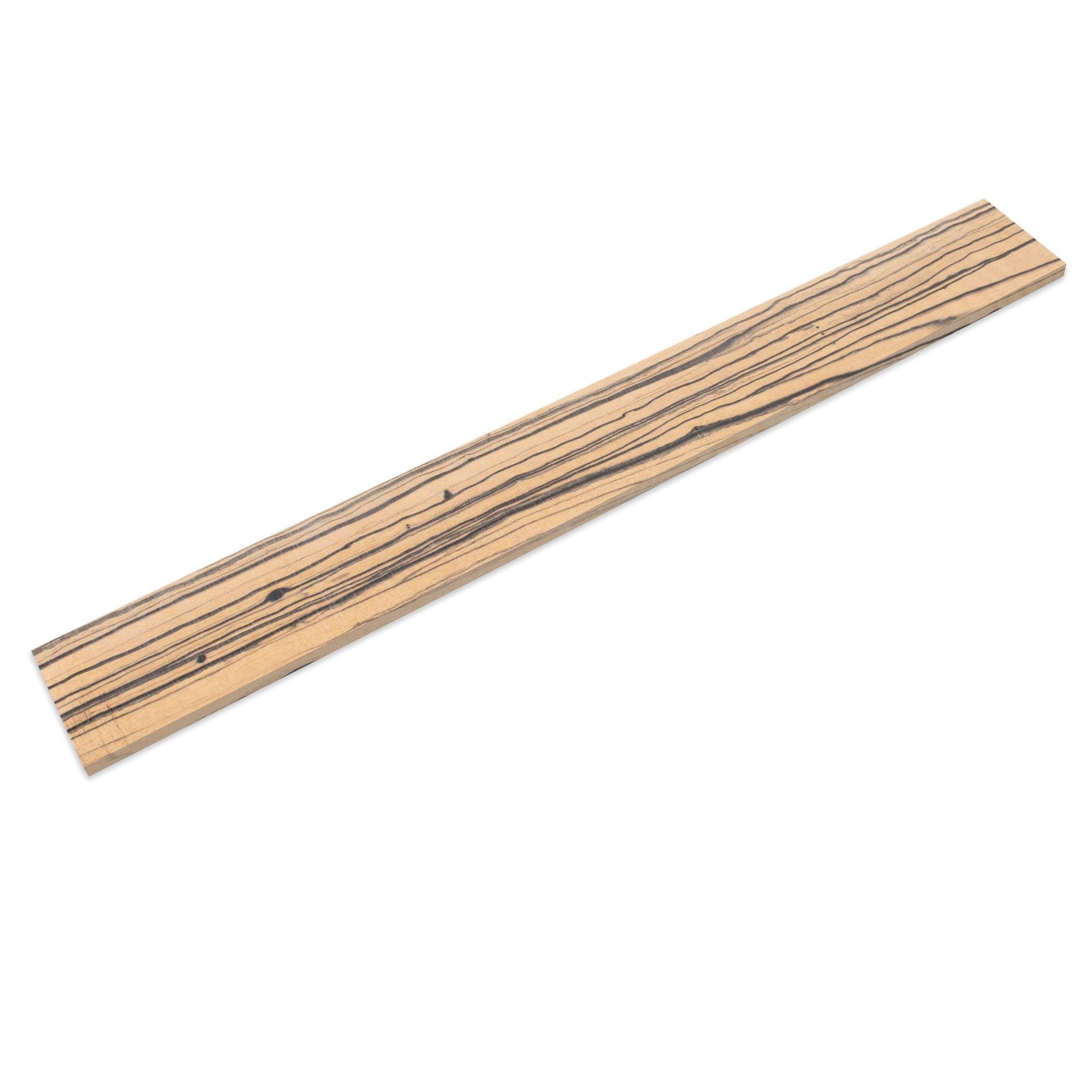
Diospyros malabarica
Minimum board dimensions:
2-7/8" x 21-5/8" x 11/32" (73mm x 549.3mm x 8.7mm)
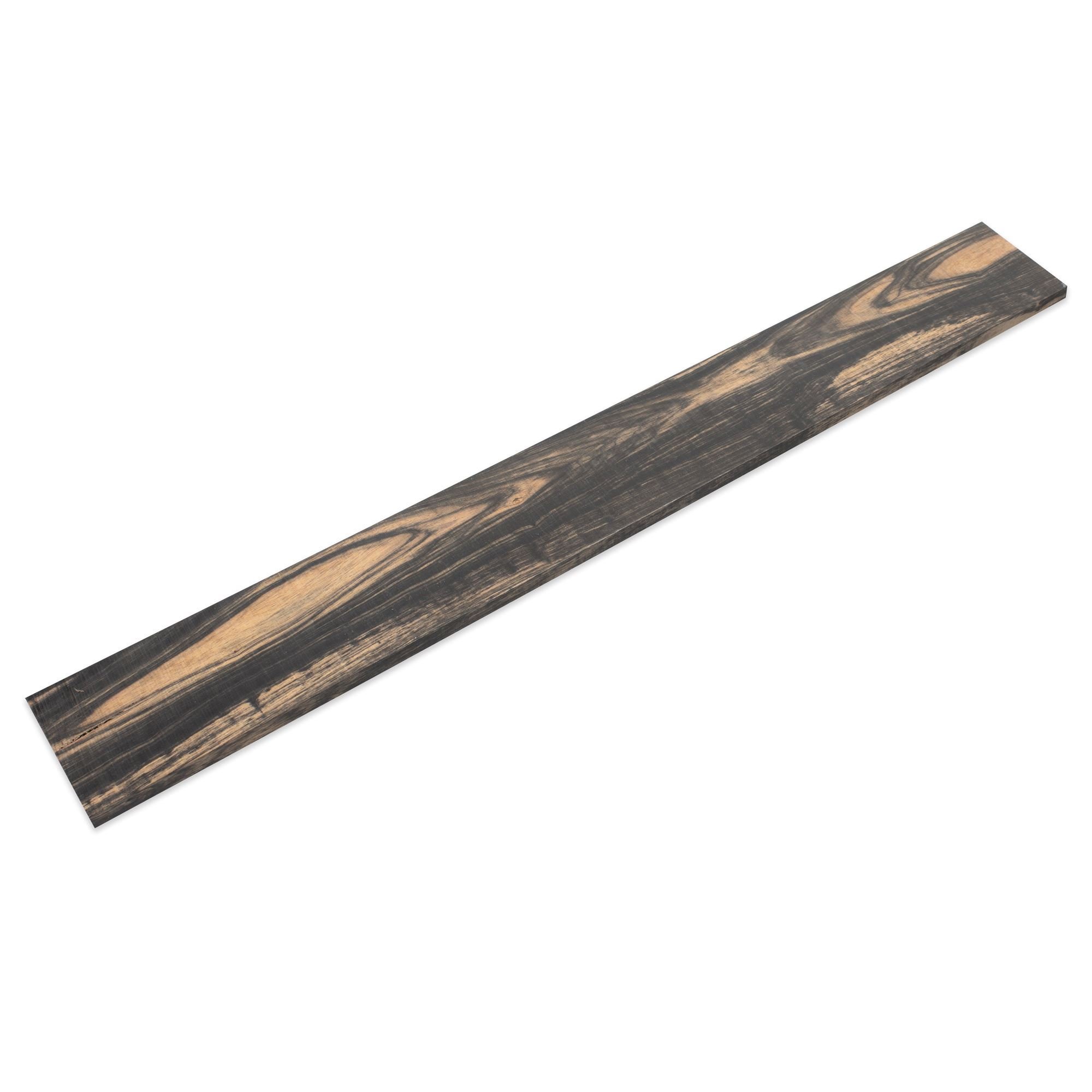
Diospyros malabarica
Minimum board dimensions:
2-3/4" x 19-3/4" x 11/32" (69.9mm x 501.7mm x 8.7mm)
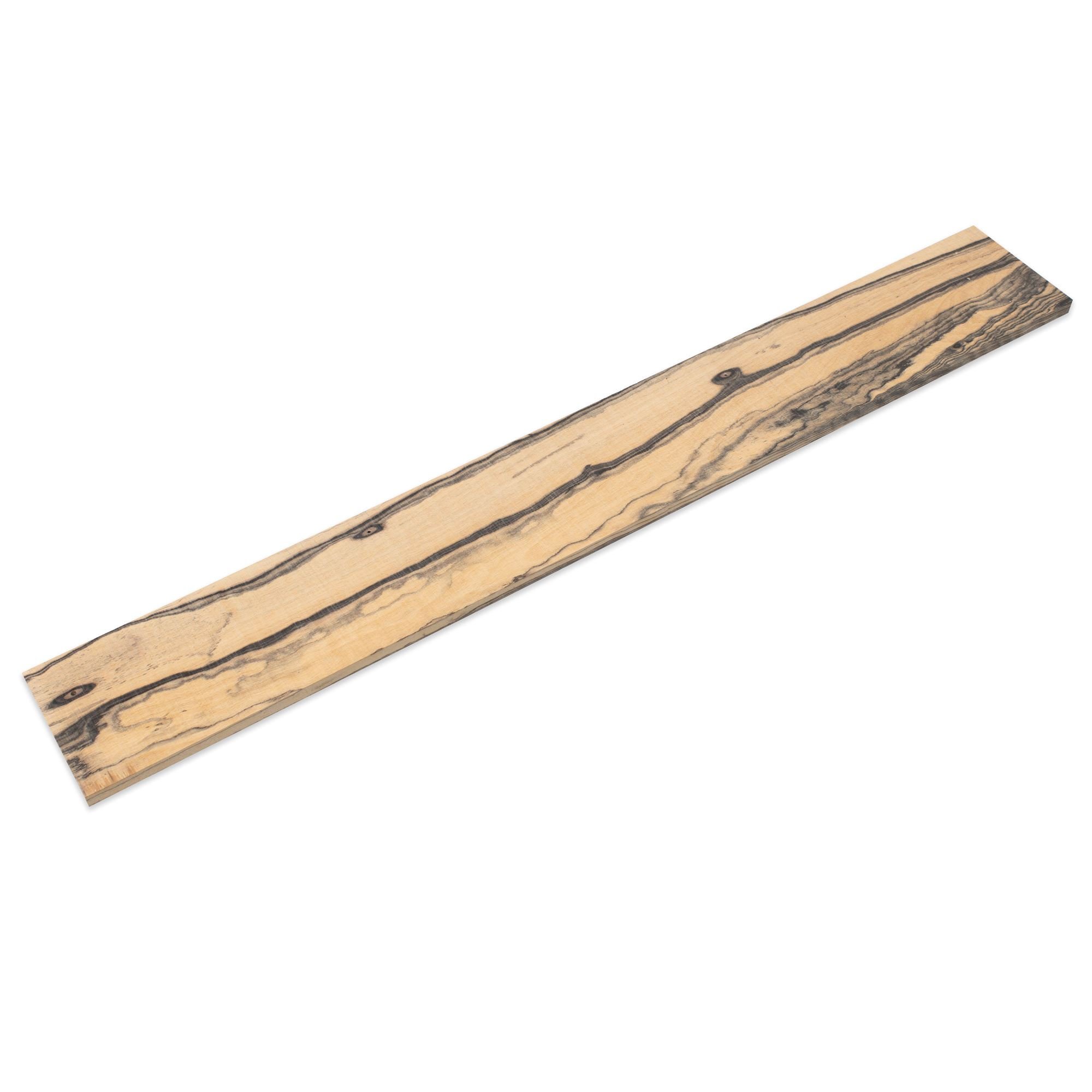
Diospyros malabarica
Minimum board dimensions:
3" x 19-3/4" x 11/32" (76.2mm x 501.7mm x 8.7mm)
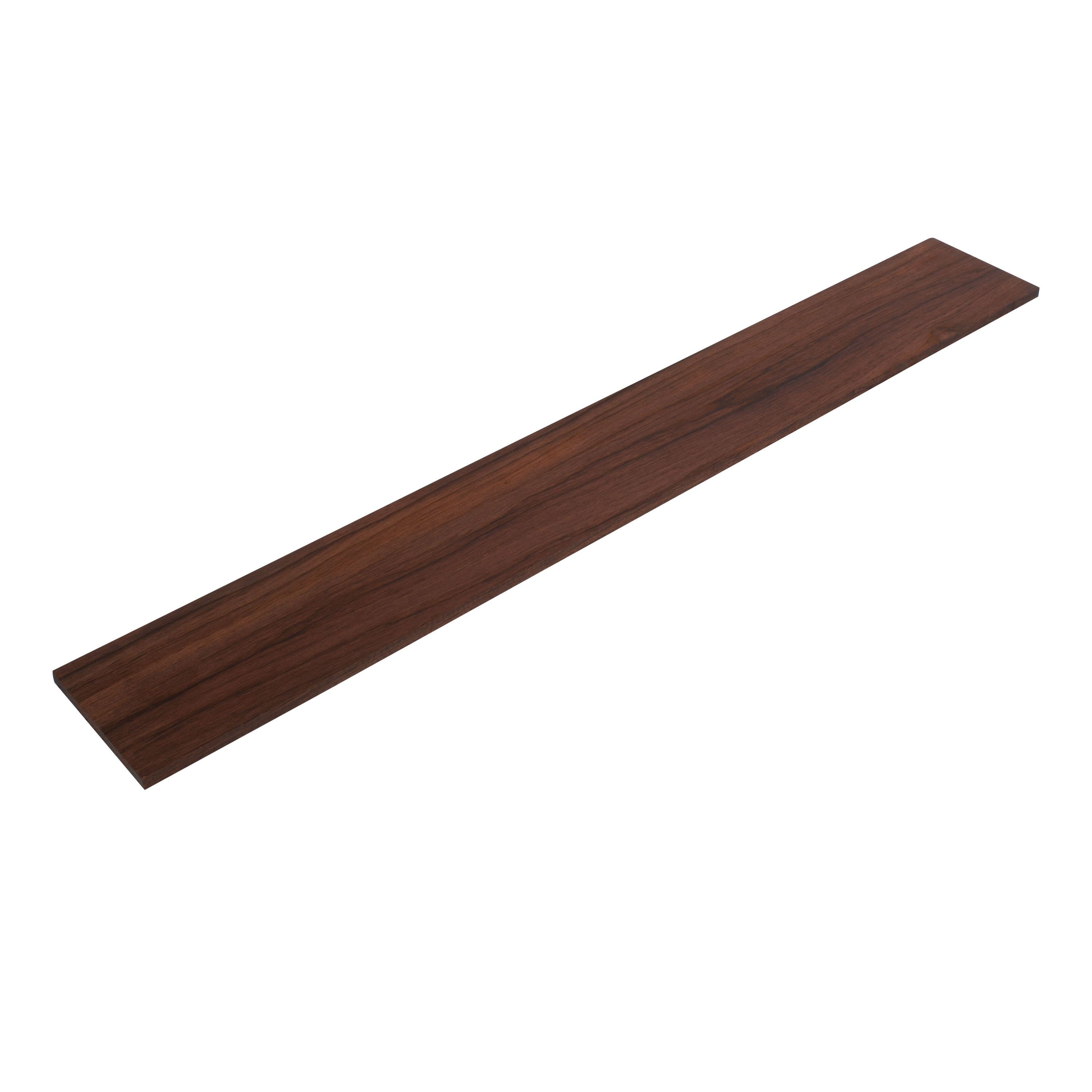
Dalbergia baroni
Minimum board dimensions:
2-3/8" x 20" x 15/64" (60.32mm x 508mm x 5.95mm)
Cannot ship outside USA
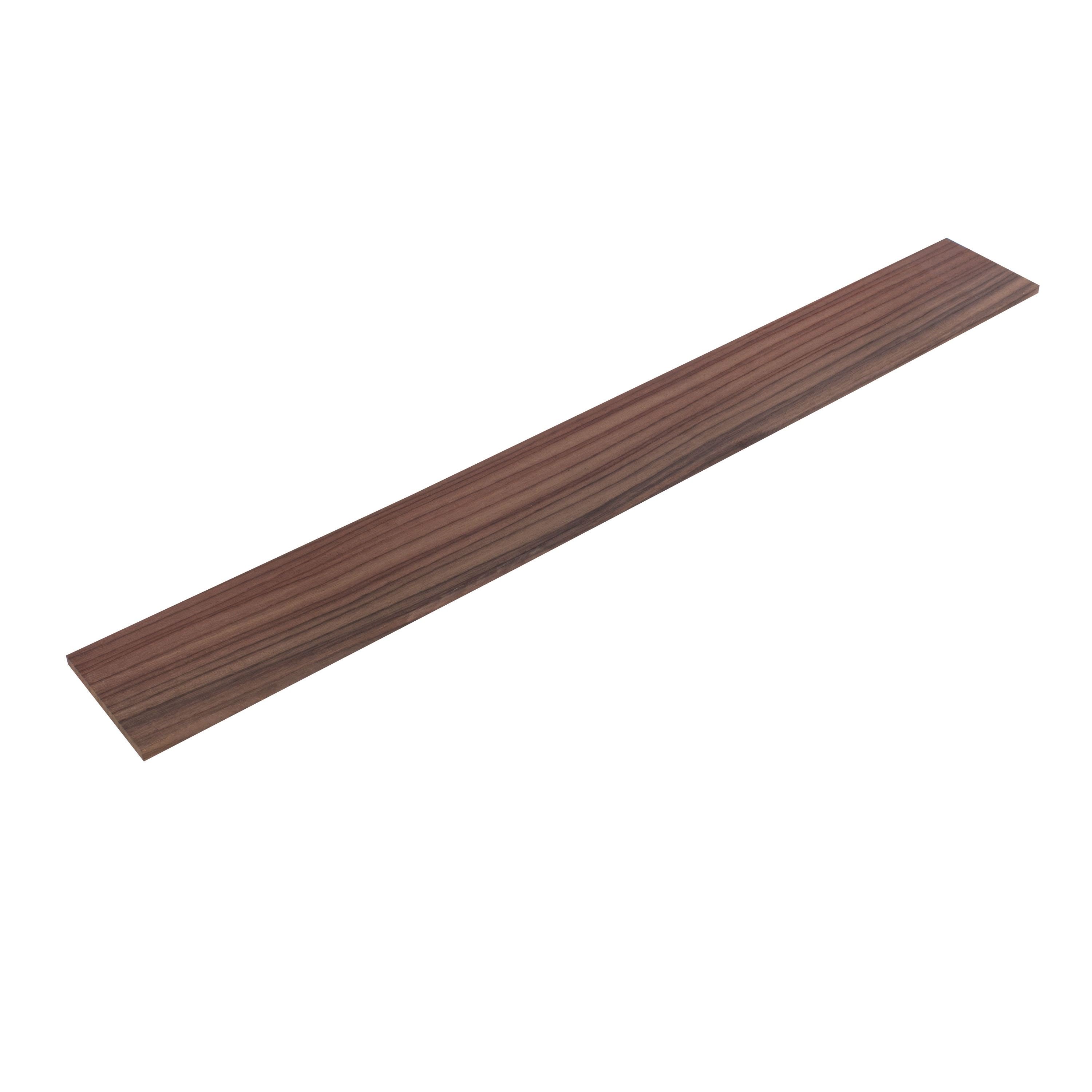
Dalbergia latifolia
Minimum board dimensions:
2-3/8" x 20" x 15/64" (60.32mm x 508mm x 5.95mm)
Cannot ship outside USA
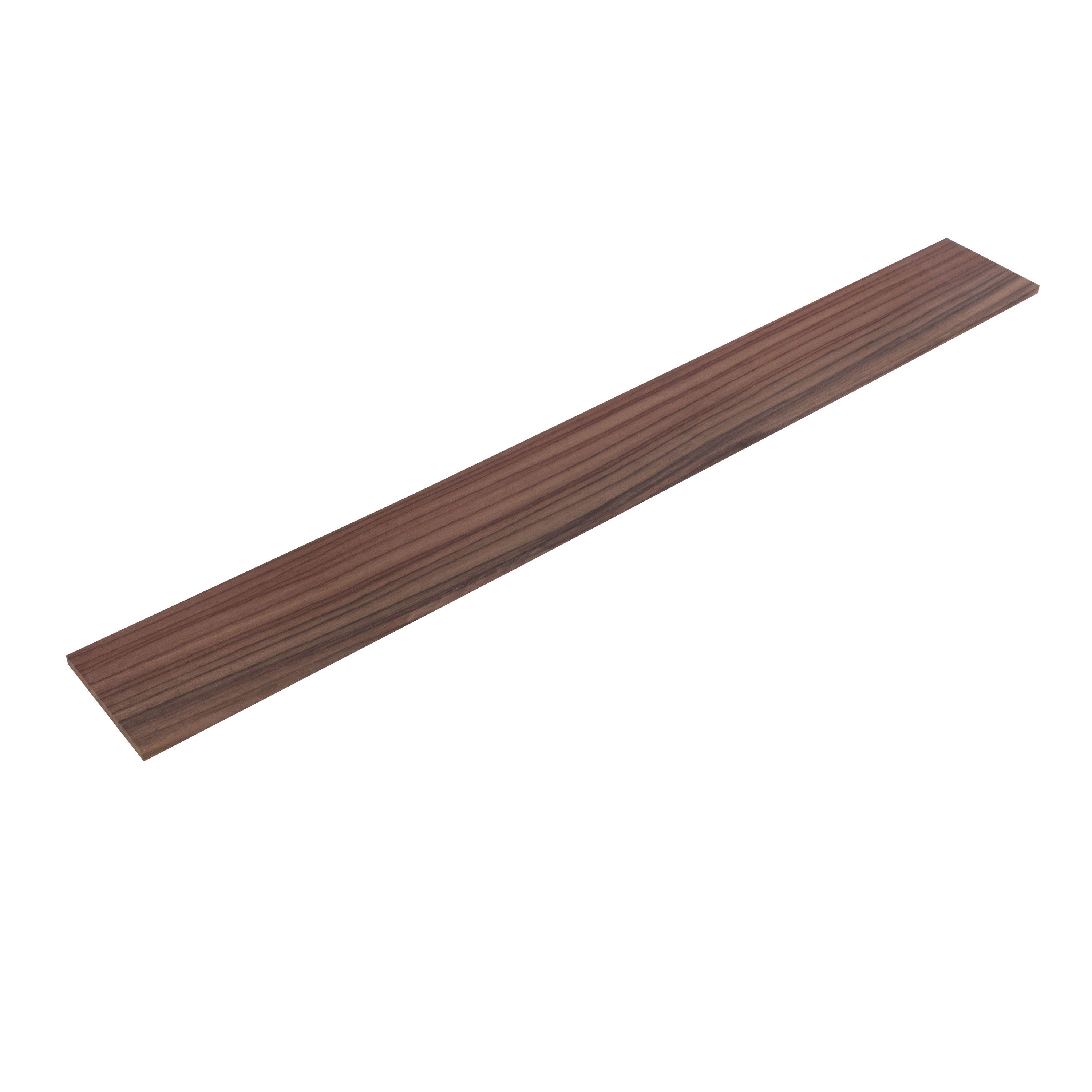
Dalbergia latifolia
Miniumum board dimensions:
2-1/2" x 20-7/5" x 11/32" (65mm x 530mm x 9mm)
Cannot ship outside USA
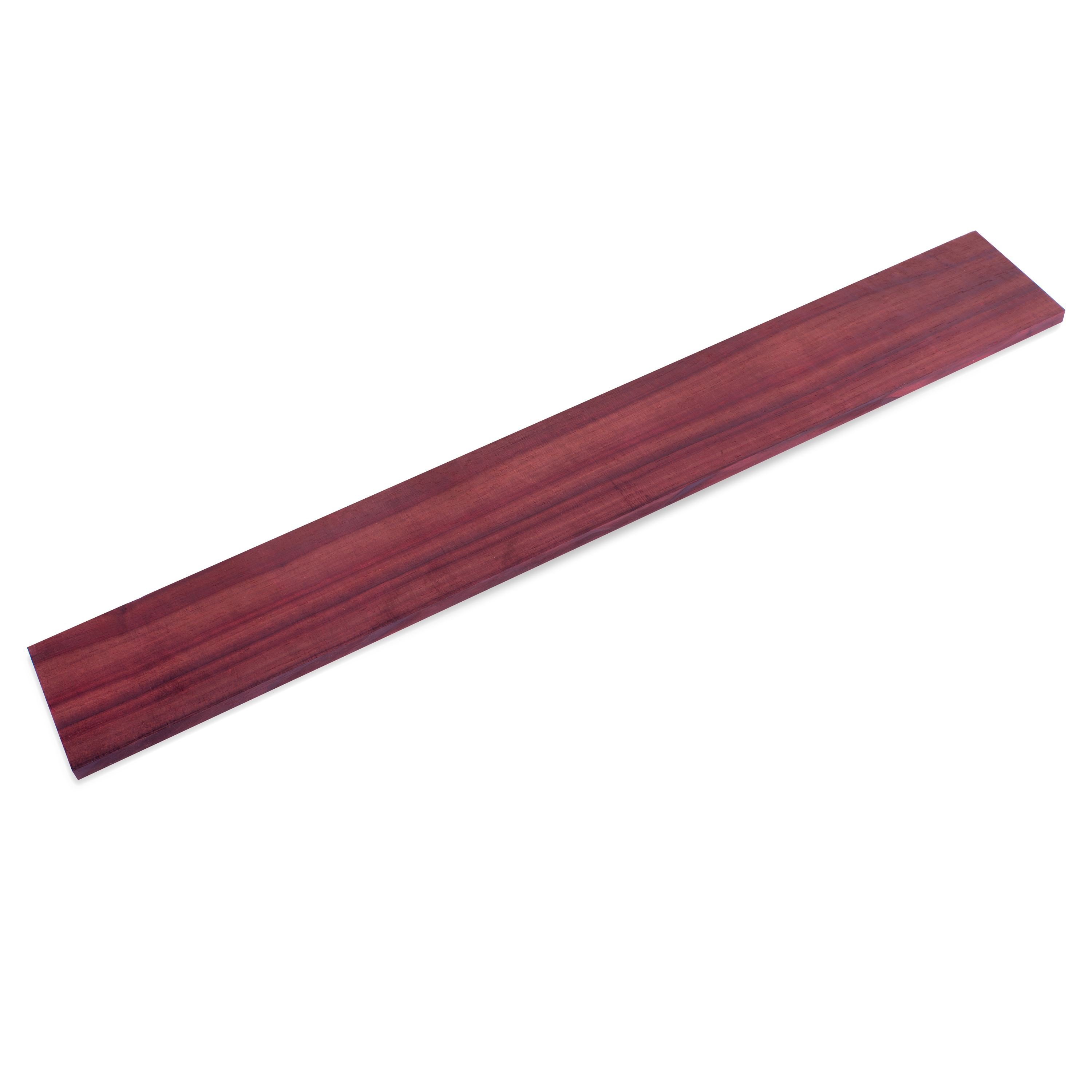
Dalbergia maritima
Minimum board dimensions:
3" x 20-7/8" x 11/32" (75mm x 530mm x 9mm)
Cannot ship outside USA
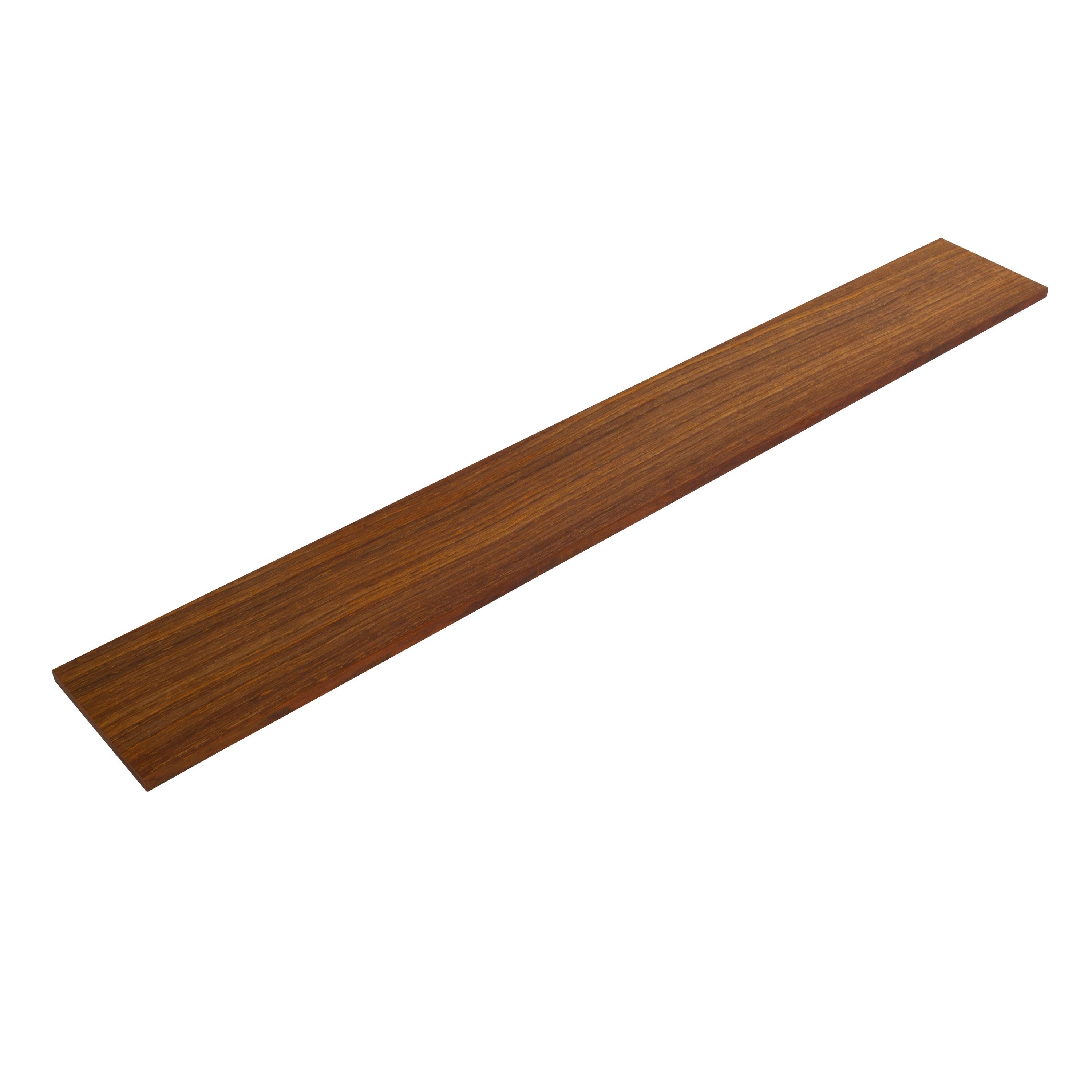
Dalbergia retusa
Minimum board dimensions:
2-3/8" x 20" x 15/64" (60.32mm x 508mm x 5.95mm)
Cannot ship outside USA
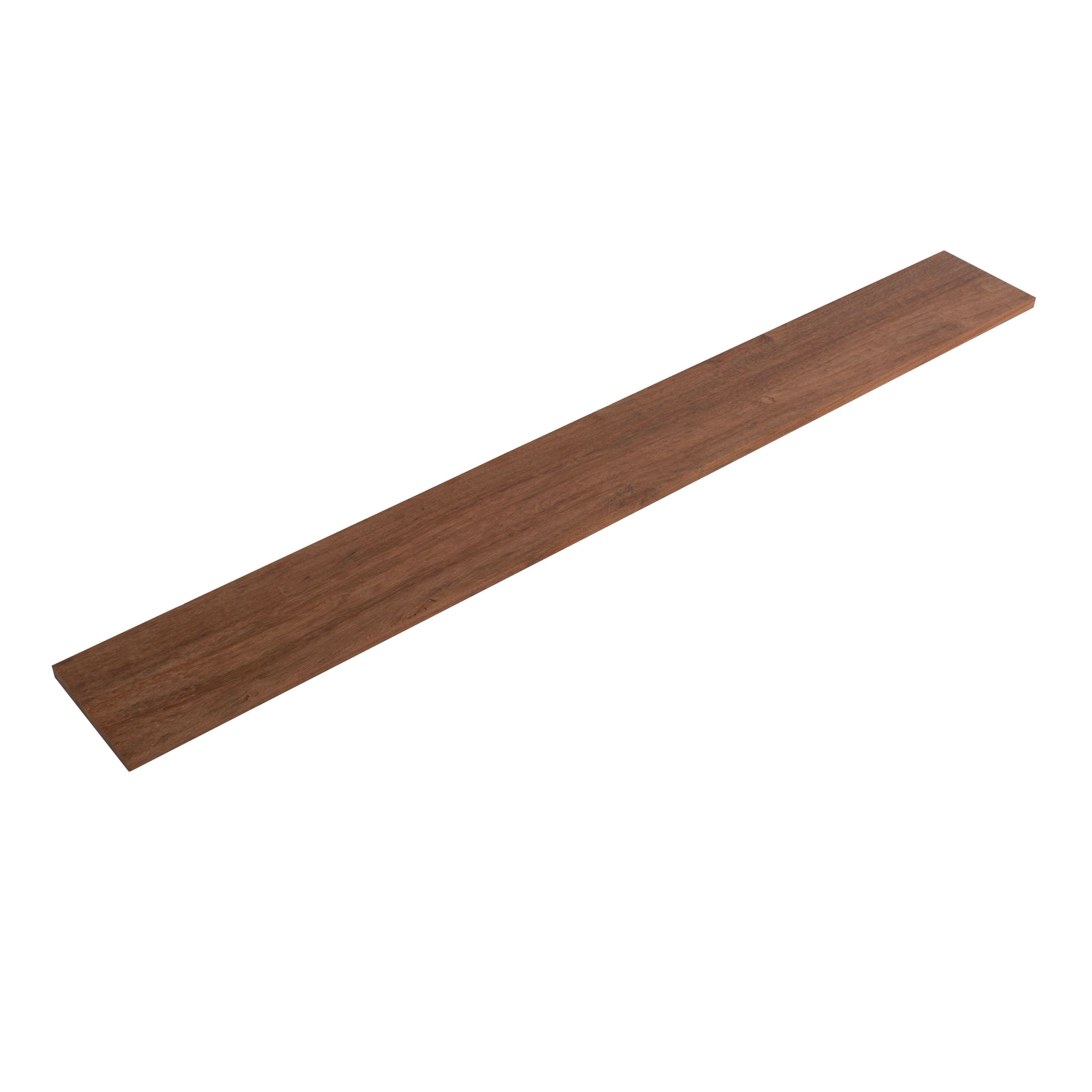
Platymiscium yucatanum
Minimum board dimensions:
2-3/8" x 20" x 15/64" (60.32mm x 508mm x 5.95mm)
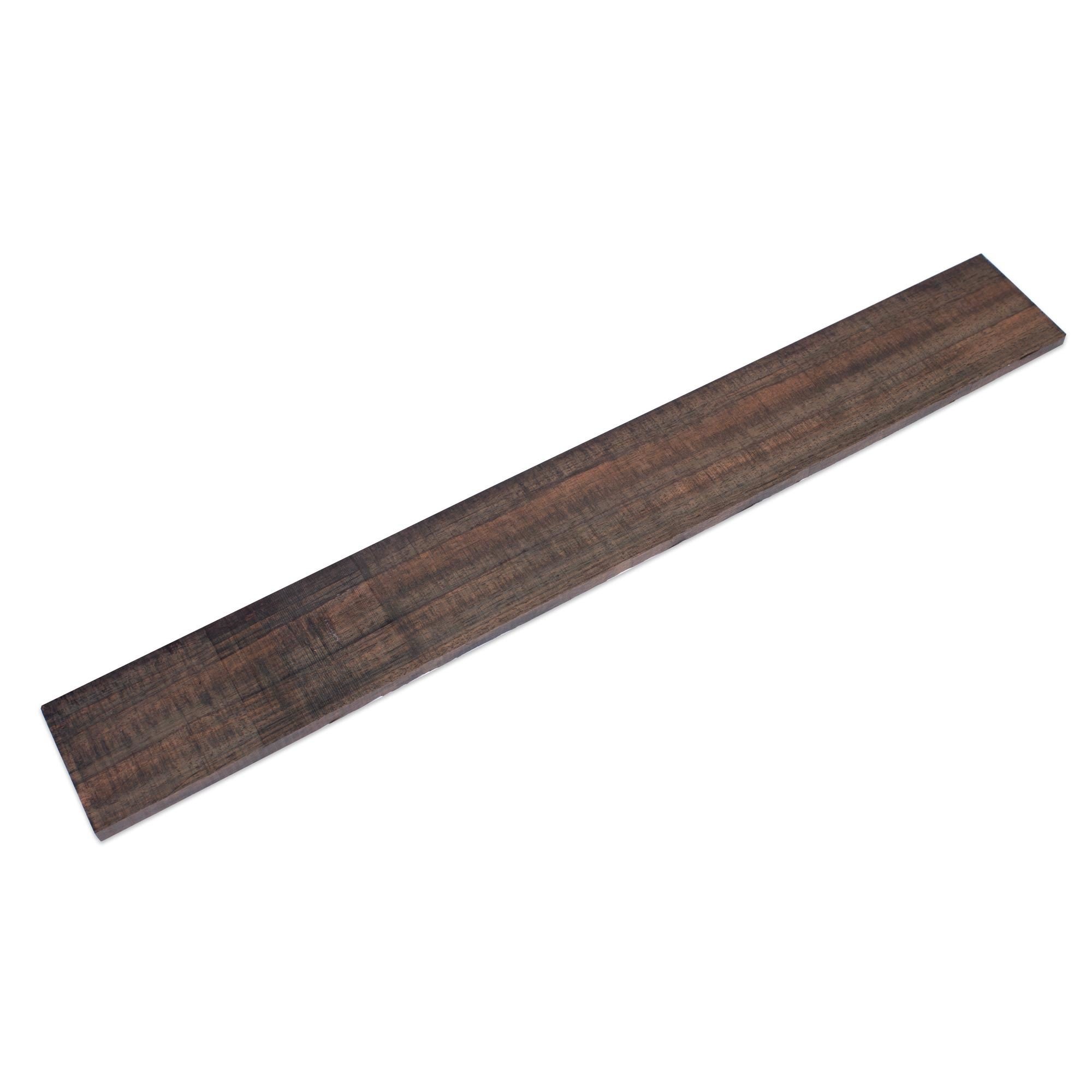
Diospyros ebonasea
Minimum board dimensions:
3" x 20-7/8" x 11/32" (75mm x 530mm x 9mm)
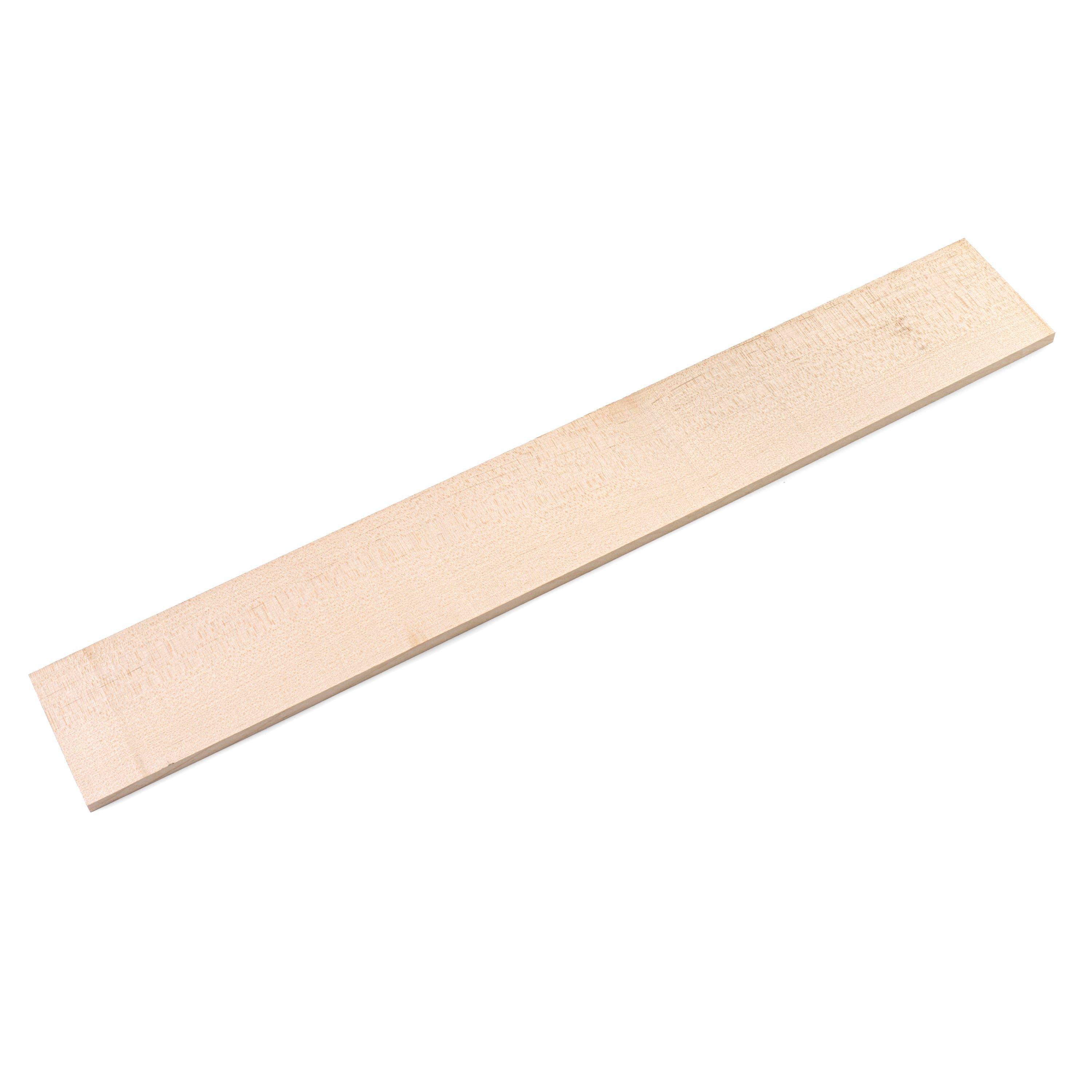
Acer saccharum
Minimum board dimensions:
2-3/8" x 20" x 15/64" (60.32mm x 508mm x 5.95mm)
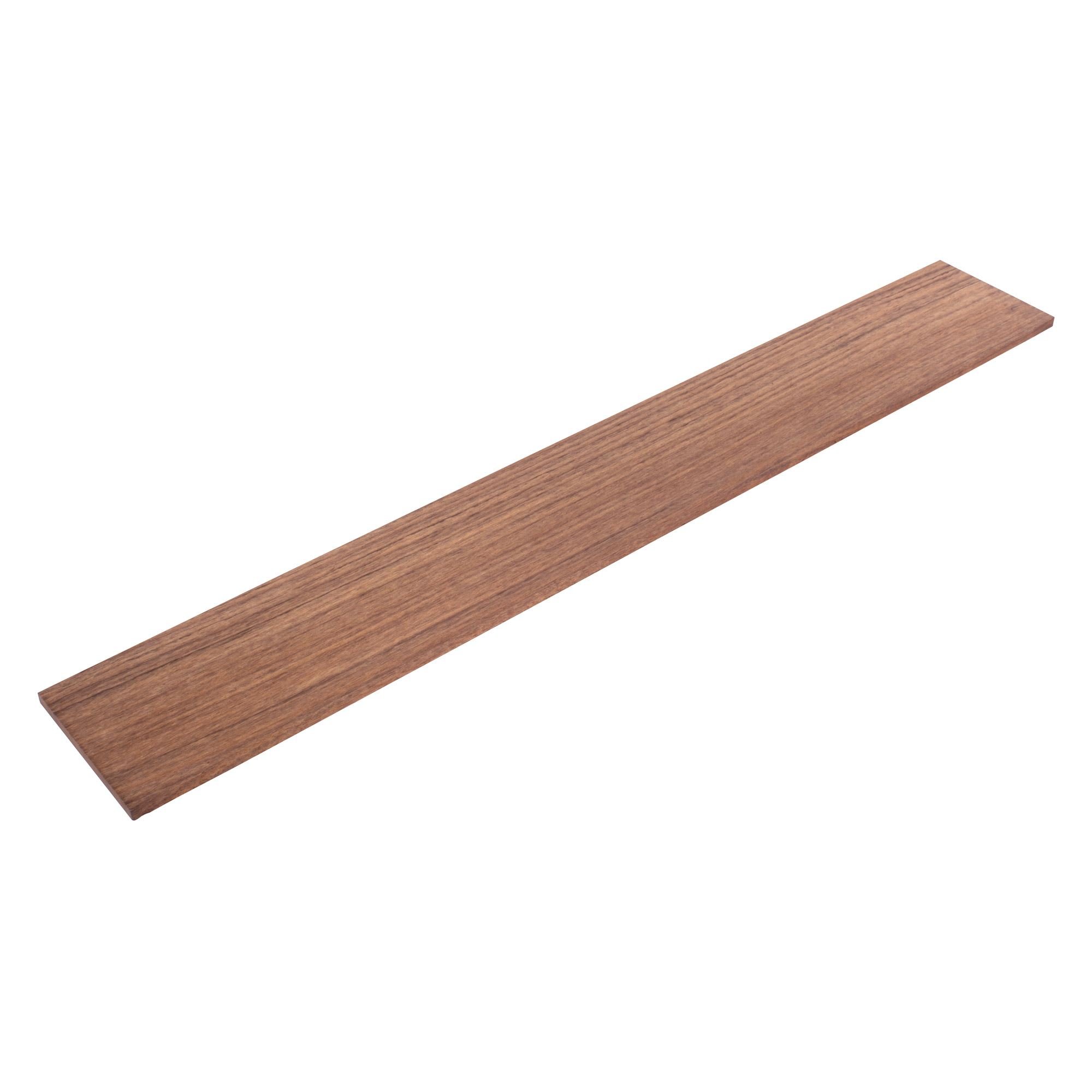
Guibourtia ehie
Minimum board dimensions:
2-3/8" x 20" x 15/64" (60.32mm x 508mm x 5.95mm)
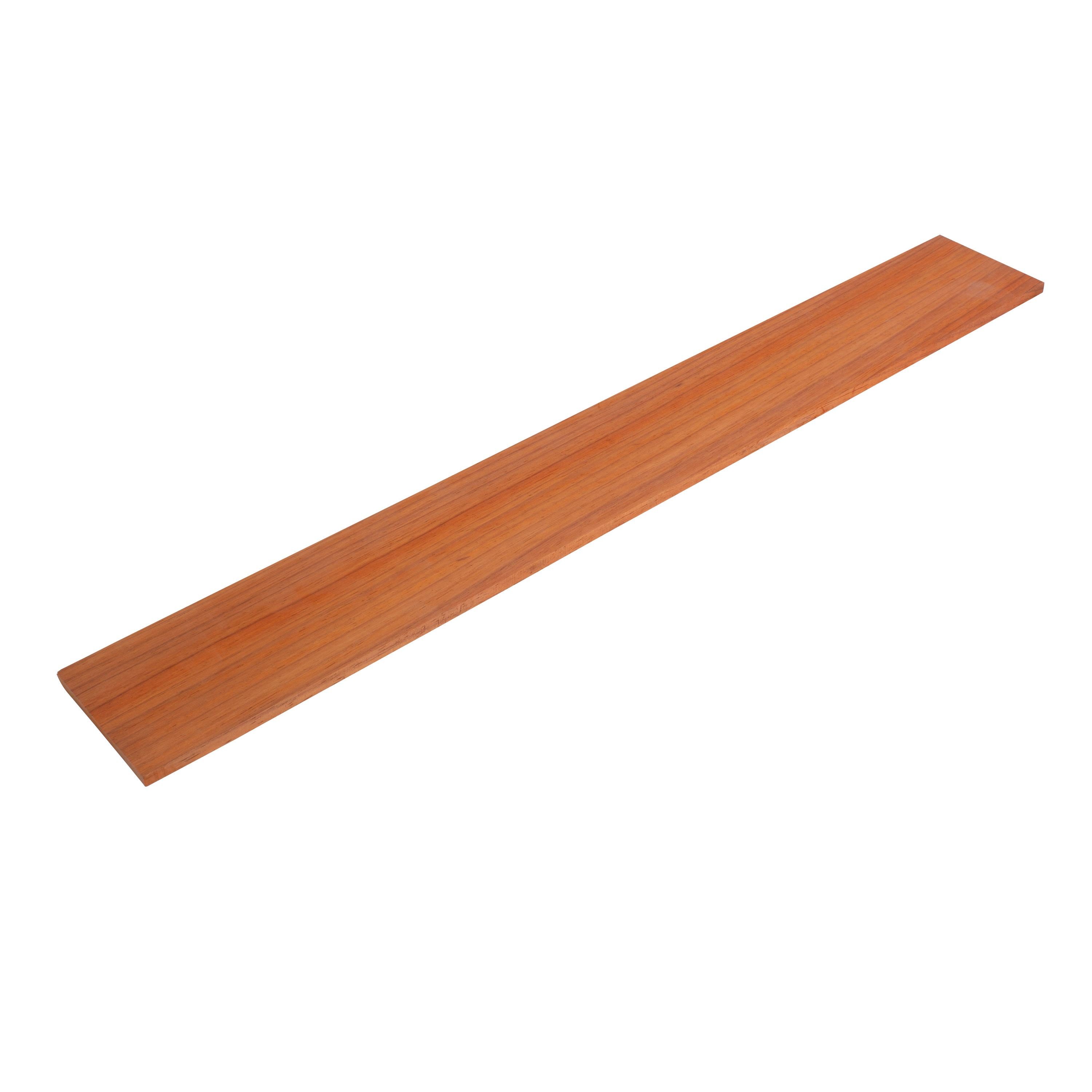
Pterocarpus soyauxii
Minimum board dimensions:
3" x 20-7/8" x 11/32" (75mm x 530mm x 9mm)
Cannot ship outside USA
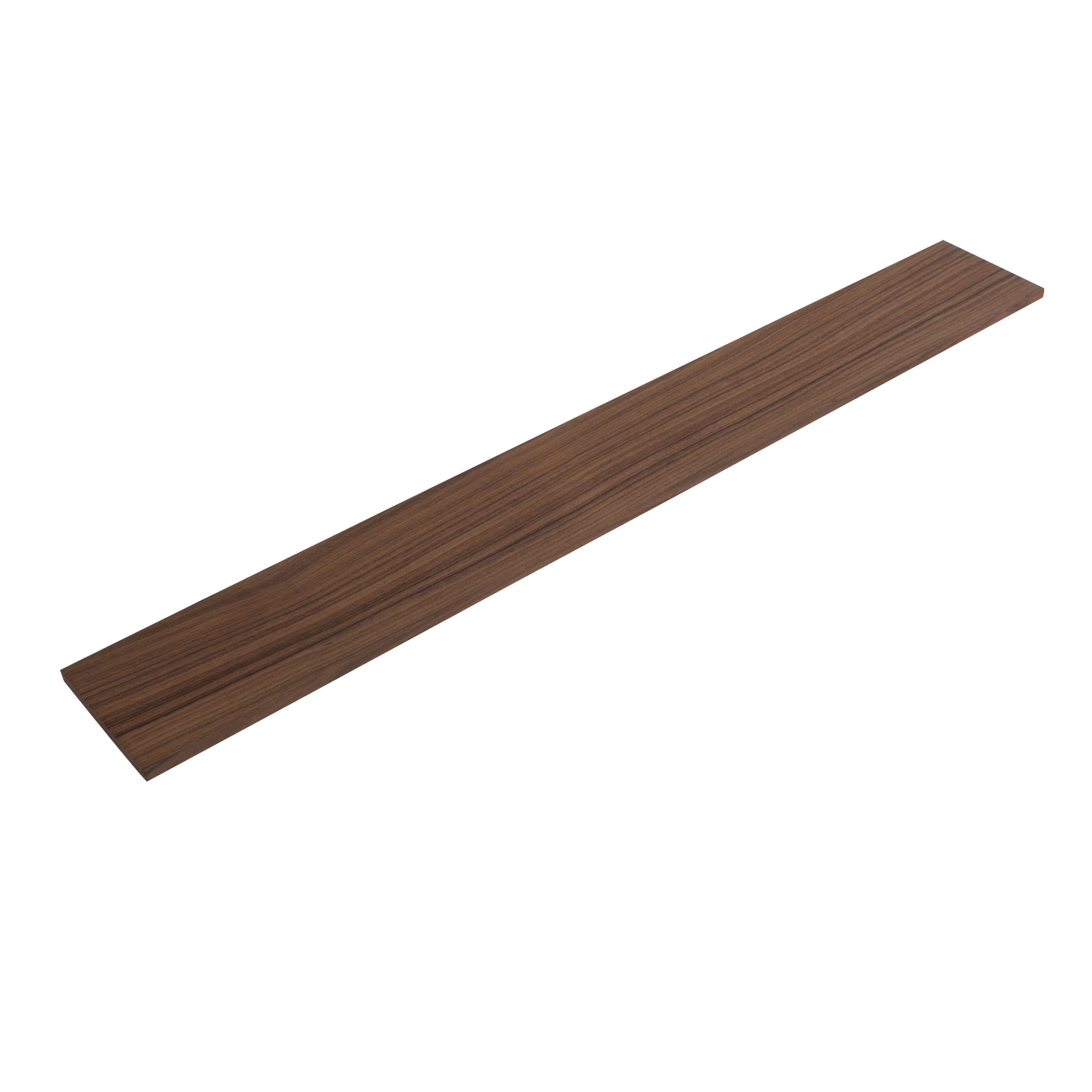
Machaerium scleroxylon
Minimum board dimensions:
2-3/8" x 20" x 15/64" (60.32mm x 508mm x 5.95mm)
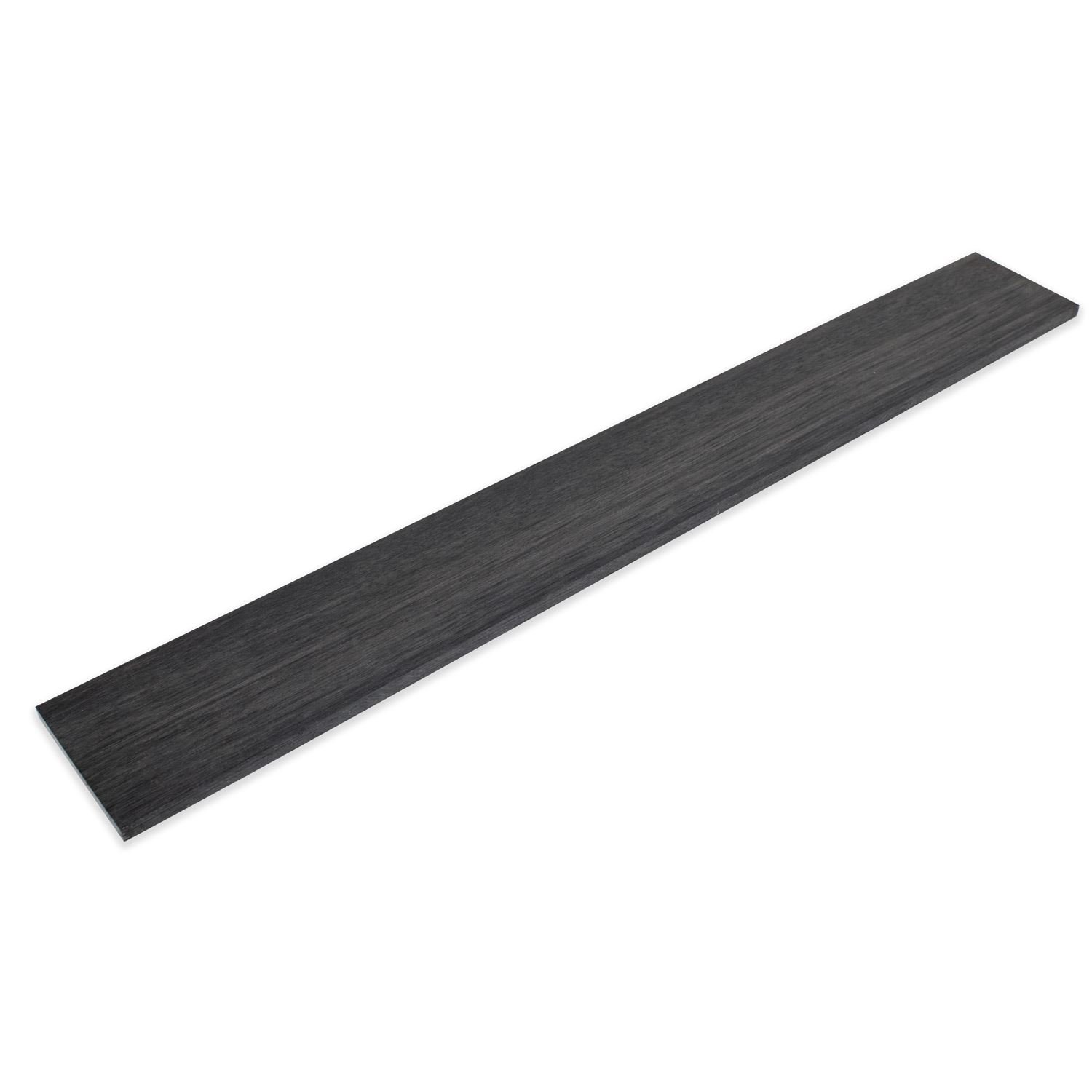
Peltogyne catingae
Minimum board dimensions:
2-3/4" x 21" x 11/32" (69.85mm x 533.4mm x 8.73mm)
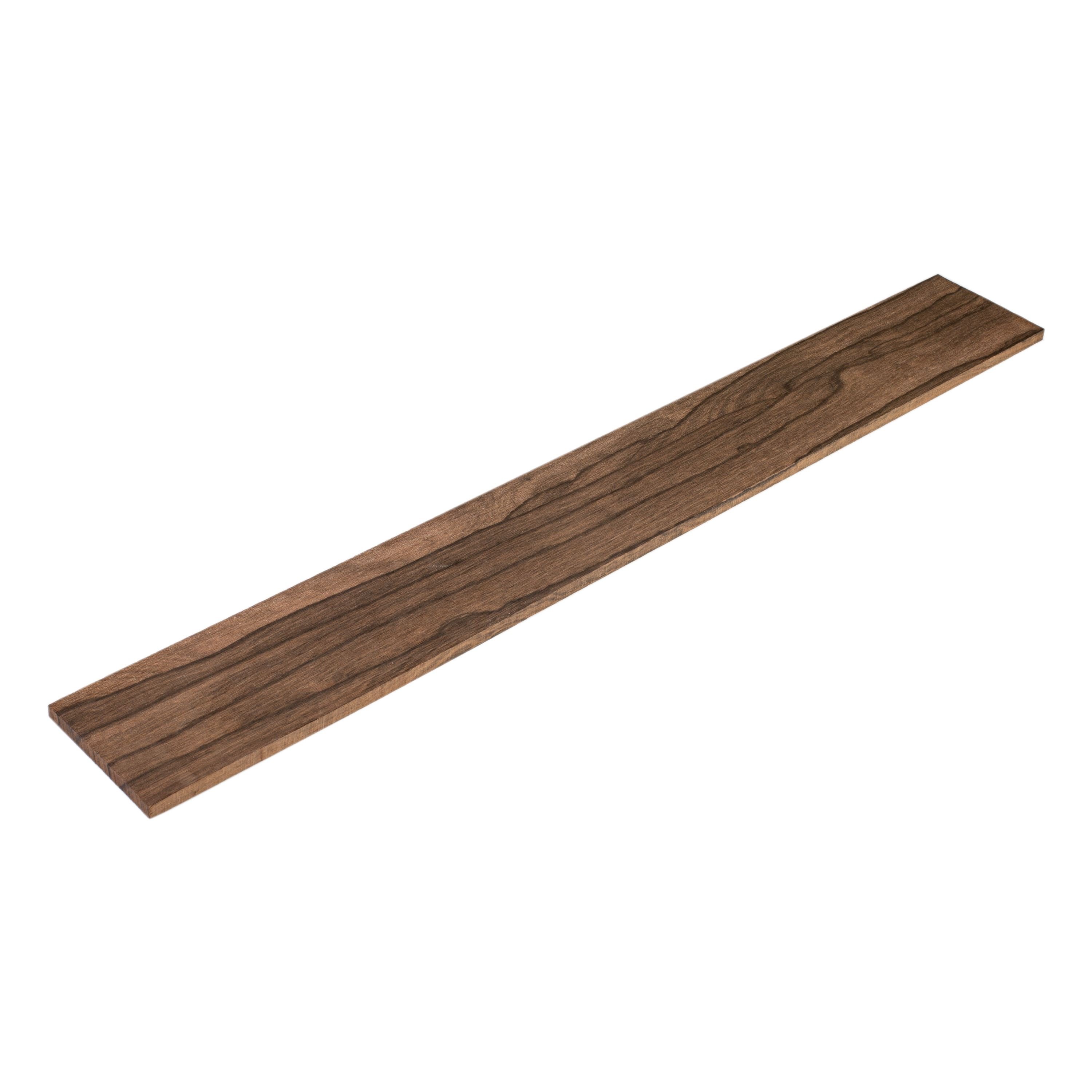
Cordia dodecandra
Minimum board dimensions:
3" x 21" x 5/16" (76mm x 533mm x 8mm)
Unslotted Fingerboard for Guitar
As you probably know, in recent years the availability of high quality, old-school, style fingerboards—the kind players have come to expect on their guitars—have been harder and harder to find.
As a result, our team set out on a mission to scour the world to find sustainable stashes of the best quality fingerboards available anywhere, and now, after much searching we're proud to stock one of the finest assortments of fingerboards you'll find anywhere.
Each of our fingerboards has been kiln dried and is stable and ready for use once it's been acclimated to your shop's environment.
Ebony
For generations, builders and players have imagined "perfect" ebony as jet-black, uniform, and nearly featureless. Decades ago this was common but only because the best parts of the tree were harvested and the rest of the tree was discarded. Modern responsible harvesting ensures that all usable wood is brought to market, not just the rarest black portions. As a result, the ebony available today reflects the true beauty and natural variation of the species, and customers now have access to grades that were once ignored or left on the forest floor.
Our ebony comes from West Africa (Diospyros crassiflora), sourced through partners committed to ethical forestry and full-tree utilization. Because of that, even our very best boards often show visible grain, subtle color shifts, and natural streaking. These features don’t affect performance; ebony remains one of the hardest, most stable, and most enduring fingerboard woods in the world and many builders now prefer the character and authenticity this wood reveals.
Below is what you can expect from each grade:
Ebony, AAA Grade
Our highest grade, and the closest you'll find today to the old-school "all black" boards. Only a tiny percentage—roughly 3%—of all ebony cut meets this level. AAA boards are mostly dark and uniform, but even here you may see faint grain or subtle color shifts. They are exceptionally rare and visually stunning.
Ebony, AA Grade
AA (or 1st Grade) boards are high-quality, structurally sound ebony with a bit more visible character. Light streaks, grain lines, and color variation appear more frequently than in AAA, but these boards remain visually rich and highly desirable for premium instruments. Excellent stability and workability.
Ebony, A Grade
A Grade ebony shows more pronounced natural variation—deeper contrasting color, grey or tan patches, and occasional small cosmetic irregularities. These boards are still defect-free and meet all structural expectations for fine instruments. A great balance of beauty, performance, and value.
B Grade ebony embraces the full natural spectrum of the species. These boards often show significant color variation: tans, browns, greys, dramatic streaks, and bold visual movement. While the appearance varies widely, the material itself remains hard, durable, and perfectly suitable for fingerboards. An excellent choice for builders who appreciate organic character or want a more affordable option without sacrificing performance.
Crelicam Ebony
StewMac is extremely proud to be one of the only luthier suppliers of Crelicam Ebony (Diospyros crassiflora). This is the same species of ebony that you know and love, but each piece has been hand-selected for its gorgeous looks and exceptional feel. Each fingerboard is unique, the colors range from tans and golds, to blacks, greens and purples with a mix of variegation, light and dark lines, and even some flame. Crelicam Ebony is very hard, super smooth, and holds frets well—you'll make an excellent playing fingerboard with a boutique, one of a kind look.
Leopard Ebony
A bold look with the same legendary tone and feel. Leopard Ebony is a striking visual variation of the same African Ebony (Diospyros crassiflora) we’ve trusted for years. What sets it apart is its dramatic figure—wavy, mottled grain patterns that resemble the namesake big cat. While it’s visually wild, it still machines beautifully, finishes smoothly, and delivers the dense, articulate tone builders rely on. If you're looking for something a little more distinctive—without sacrificing the feel or performance of traditional ebony—this board is a perfect choice.
Macassar Ebony
Macassar Ebony (Diospyros celebica) is a bold and beautiful fingerboard choice, known for its rich brown, black and gold striping that sets it apart from more traditional ebony. Each board has its own dramatic flair, ranging from subtle ribboning to intense, high-contrast variegation. Dense, stable, and takes a beautiful high polish, it's a top pick for builders who want premium feel and a striking look. These are hard to find in consistent quality—when they’re gone, they’re gone.
Pale Moon Ebony
If you want your next build to make a statement, this is the species to do it. Pale Moon Ebony (Diospyros malabarica), also known as Black and White Ebony, features dramatic inky-black streaks across a creamy blonde base—each board a piece of natural art. We have several grades with the highest grades giving the most vibrant visual variation and the lower grades being more visually subtle. This wood is extremely rare. We acquired every piece our supplier had. When these are gone, they may be gone for good.
Indian Rosewood
It's easy to assume that due to Indian Rosewood's (Dalbergia latifolia) low price this is a lesser quality rosewood, but nothing could be further from the truth. For decades Indian Rosewood has been the choice of boutique builders as well as major manufacturers because it is extremely stable, beautiful, and is (often) much less expensive than more exotic rosewoods. In recent years there have been wide swings in the quality of Indian Rosewood, but our team has procured sustainable sources of some of the darkest, most even and straight-grained Indian Rosewood fingerboards available anywhere.
Bois de Rose
Rich and complex in both tone and color, Bois de Rose (Dalbergia maritima) is a very rare and very special tonewood. While a true rosewood from Madagascar, it is distinct from the more widely known Madagascar Rosewood (Dalbergia baronii). This wood showcases a deep wine-red color that oxidizes to a dark shade of purple, reminiscent of an eggplant. Thanks to our partnership with Madinter in Spain, we can legally source this extraordinary wood for our U.S. customers.
Cocobolo
Cocobolo (Dalbergia retusa) is another true rosewood that is an excellent choice for fingerboards. Freshly sanded Cocobolo often appears somewhere between orange and red, but over time it oxidizes nicely to a deep burgundy—almost black—color. Cocobolo is denser than most other rosewoods and thus wears very well, especially on guitars that will see a lot of heavy use.
Granadillo
Since all rosewoods are now part of the CITES treaty and international export is prohibited, Granadillo (Platymiscium yucatanum) has been rising in popularity among European and North American builders. It is an extremely inexpensive, dense, non-porous wood that resists wear, has a strong resonant tap-tone and glues well. Most boards range between sandy and “brick" brown and oxidizes over time to a warm dark brown patina.
Machiche
Another emerging Central American tonewood, Machiche (Lonchocarpus castilloi) compares favorably to Honduran Rosewood. Its excellent tap tone, high density, and easy workability have made it a new favorite for steel string and classical builders. Visually the grainlines are very similar to Honduran Rosewood, with a combination of reds, and light and dark browns. It also glues and finishes with ease.
Malaysian Blackwood
Malaysian Blackwood (Diospyros ebonasea) is a member of the ebony family, but unlike other ebonies, it has extremely beautiful color variations that range from blacks, browns, greys and greens with striking sandy colored sap wood. Each is visually unique and complex variegation is common.
Maple
Our ultra-hard and smooth Rock Maple (Acer saccharum) fingerboards are perfect for electric guitar builds. This North American native species works well and plays effortlessly. The maple we secured for our fingerboards is uniform in color and has that classic look and feel. The non-porous surface is easy to stain and finish in either gloss or matte for the exact feel you want.
Ovangkol
Ovangkol (Guibourtia ehie) has been used for years for acoustic guitar back and side sets, but more recently it has become a popular choice for other parts of the instrument. Similar in density to Indian Rosewood, Ovangkol is another suitable substitute for CITES restricted rosewoods. Most boards are light to medium brown with dark brown and black grain lines that have an exotic, refined look that makes it a great choice for custom guitar makers.
Padauk
Padauk (Pterocarpus soyauxii) is an opened grained wood that is easy to machine and glue, and offers an extremely beautiful, exotic look to your next custom build. This wood is extremely popular with high end electric guitar makers and its striking pink/red color and perfectly straight grain create a stunning visual effect.
Pau Ferro
In recent years Pau Ferro (Machaerium scleroxylon) fingerboards have become quite popular—especially with electric guitar builders—due to its sustainability, excellent resistance to wear and ability to hold frets like a vise. Plus, its non-porous surface makes it feel silky smooth and almost effortless to play.
Royal Blackwood
Royal Blackwood is created by the torrefication of Purpleheart (Peltogyne catingae). This process changes the wood's color to pure black, while keeping its natural grain and workability. Unlike dye, the black color is uniform throughout the piece and does not react to glues, moisture, or solvents. With a density between Ebony and Indian Rosewood it's ideal for fingerboards. Many builders use it in place of Ebony for its remarkably similar color and feel without the export restrictions.
Ziricote
Ziricote (Cordia dodecandra) is considered by many builders to be one of the most visually stunning tonewoods available today. Its gorgeous "marbled" or "spiderweb" figure gives a totally unique look to any build. It also has an amazingly diverse range of colors—prominent dark black lines often intertwine beautifully with shades of gray, gold, green and rusty brown. It is heavier than most Rosewoods and works like Ebony.
As all rosewoods are now part of the CITES treaty, our Indian Rosewood, Madagascar Rosewood, and Cocobolo are not available for international export.
Important:
Ebony is usually not uniformly black. We offer Black Fingerboard Stain, as used by Gibson®, Paul Reed Smith® and other makers for darkening the streaks on ebony fingerboards, bridges and peghead overlays.
Need help calculating your fret locations?
Our online fret scale calculator can calculate any scale length you want to use. It will also give you accurate measurements for locating the bridge on your instrument.
